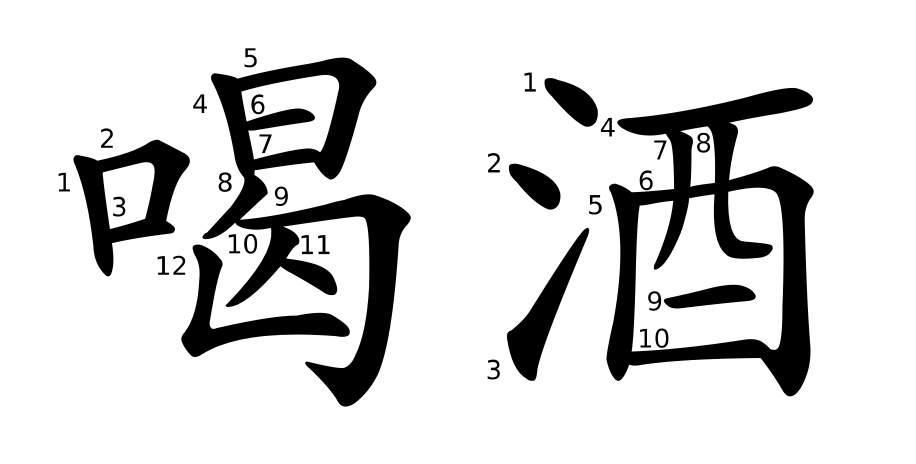Quick link:
春季、學期/学期、格外、裡面/里面、床上、發生/发生、世界、假期、收養/收养、一隻貓/一只猫、白色的毛、綠色/绿色、眼睛、注意、希望、忘了、短、別急/别急、剛才/刚才、有意思、誤會/误会、妙、句子、廢話/废话、清楚、幹什麼/干什么、肯定、忠實/忠实、爬山、跳舞、喝酒
春季 [chūnjì] N. Spring 春季學期會很忙/春季学期会很忙。The spring semester will be very busy.
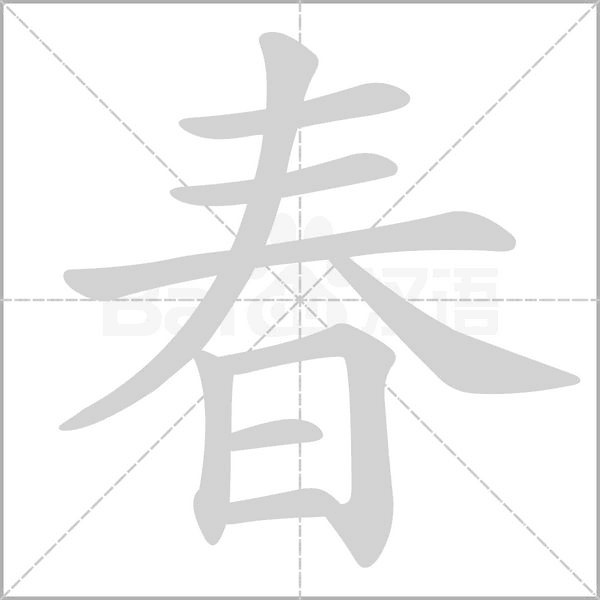
chūn: spring
radical: 日
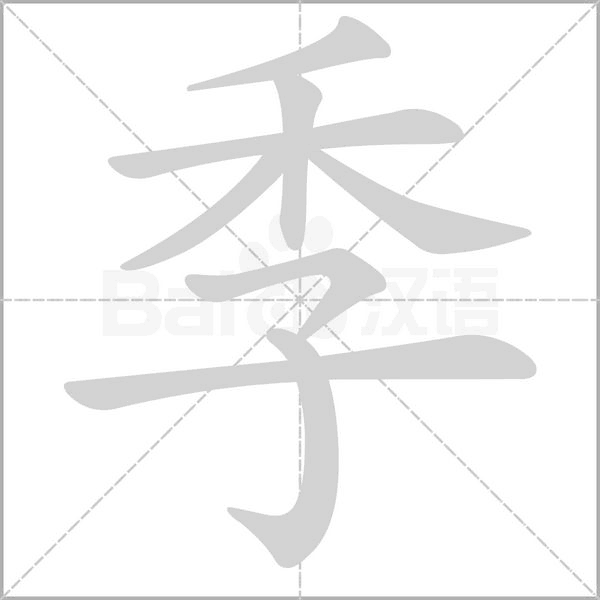
jì: season
radical: 禾 (hé; standing grain)
Both traditional and simplified characters are written as:
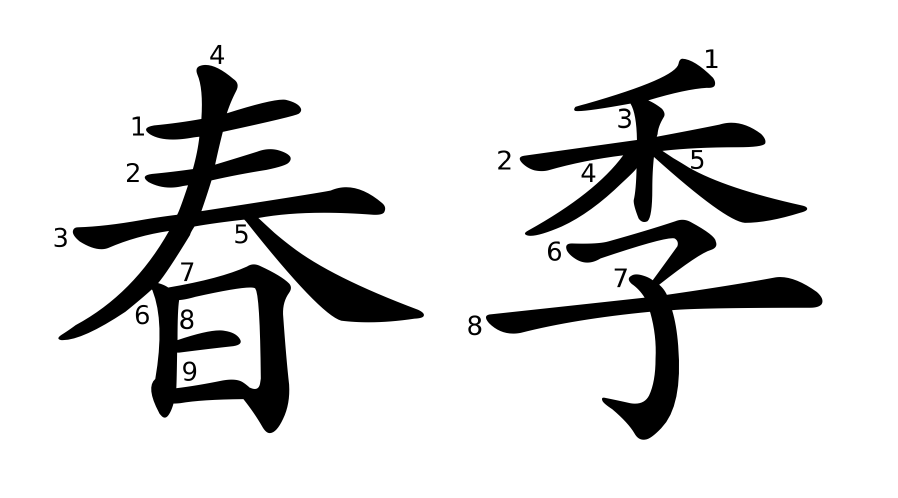
學期/学期 [xuéqī] N. semester. 我這個學期有四門課/我这个学期有四门课。I have four courses this semester.
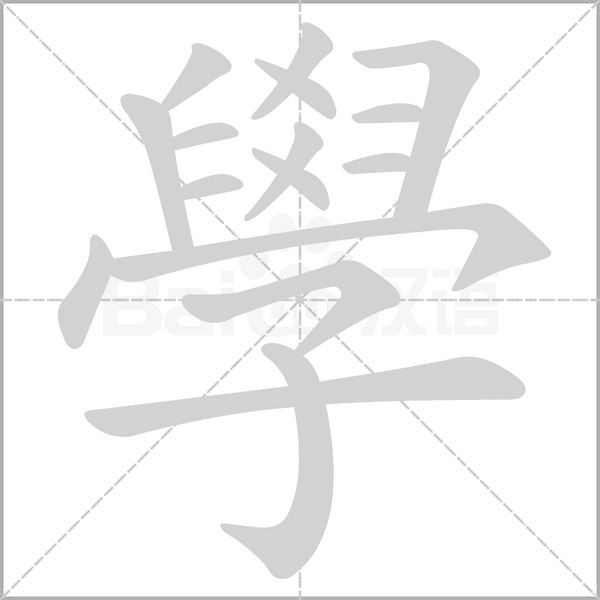
xué: study
radical: 子
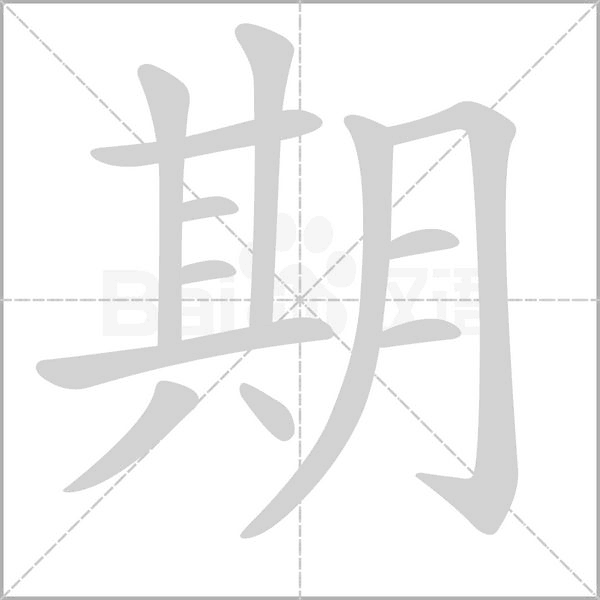
qī: period
radical: 月
Simplified character:
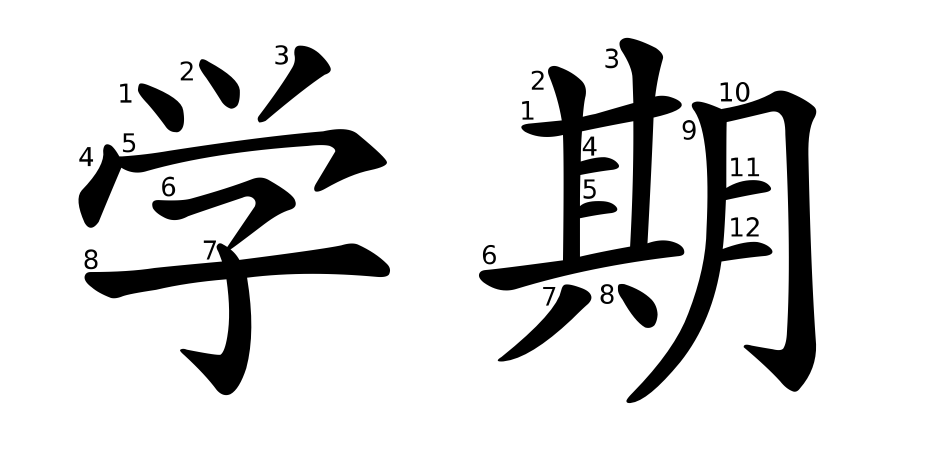
格外 [géwài] Adv. especially (formal expression) 你得格外小心。You have to be extra careful.
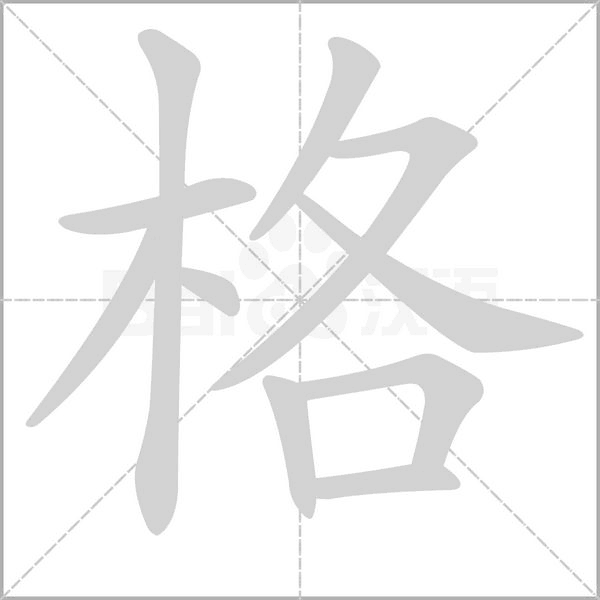
gé: check; squares formed by crossed lines
radical: 木 (mù; wood)
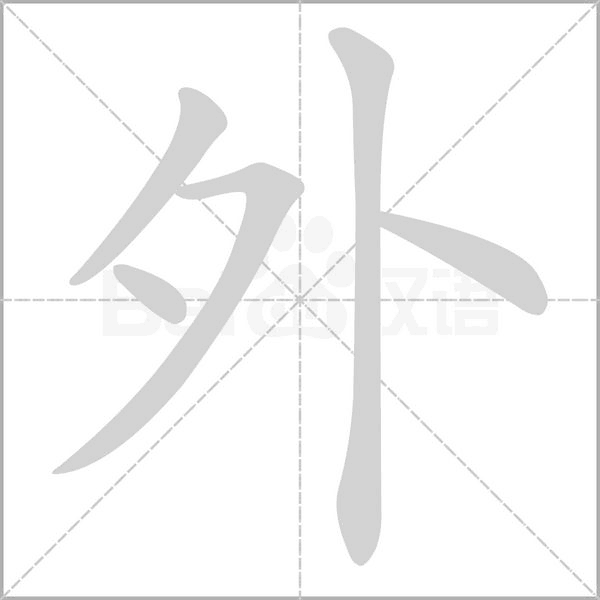
wài: outside
radical: 夕
Both traditional and simplified characters are written as:
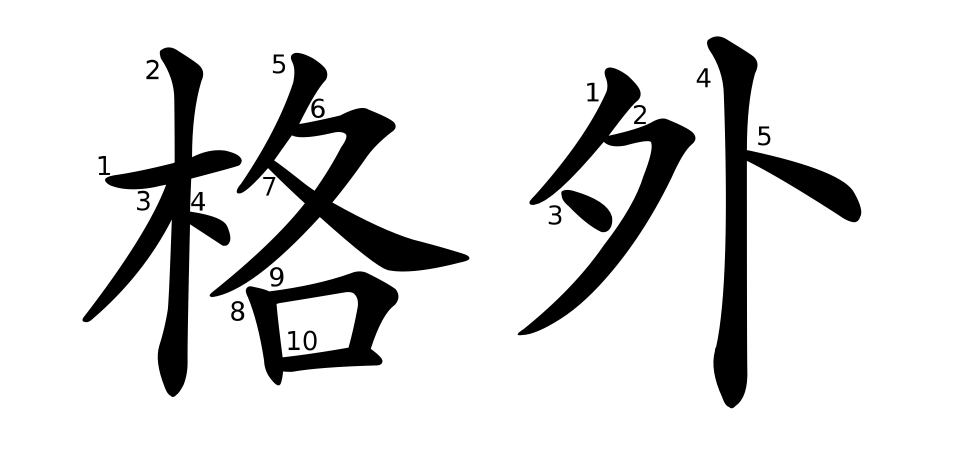
裡面/里面 [lǐ.miàn] Adv. in; inside. 宿舍裡面有三個人/宿舍里面有三个人。There are three people in the dormitory.
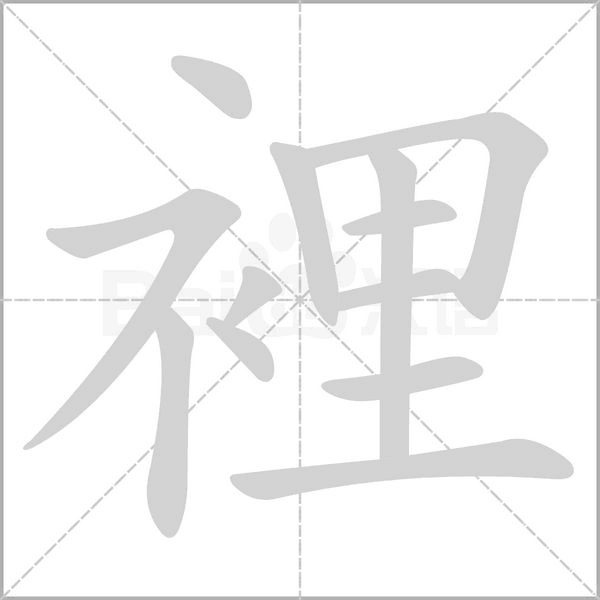
lǐ: Inside; Interior
radical: 衤
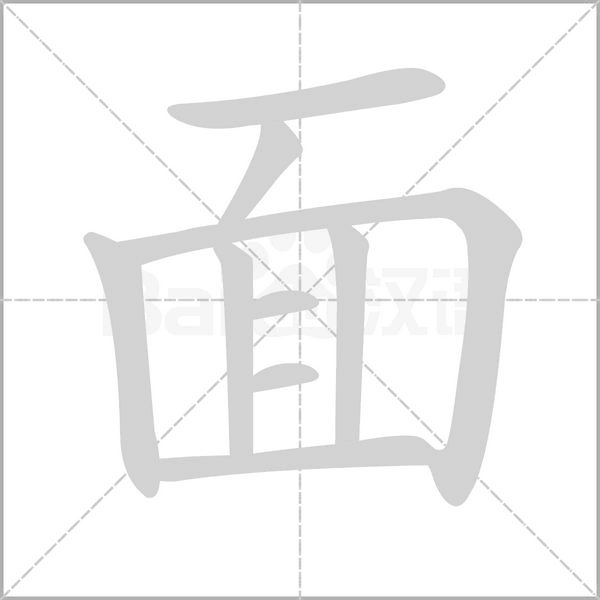
miàn: side
radical: 面
Simplified character:
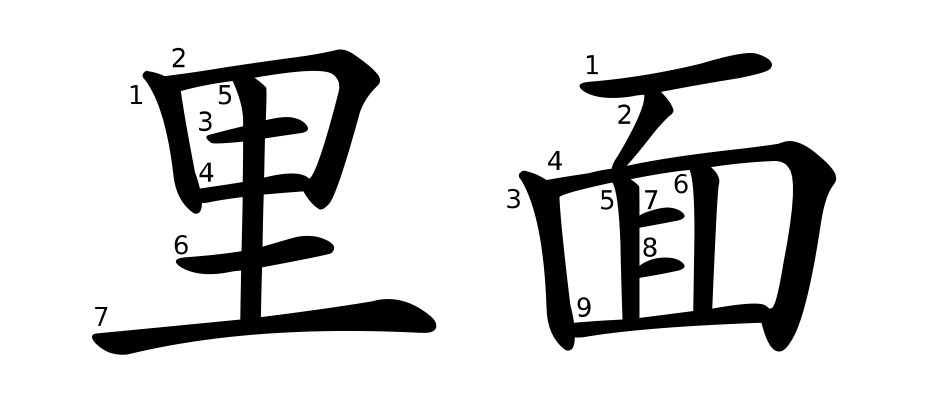
床上 [Chuáng.shàng] on the bed. 床上有一本書/床上有一本书。There is a book on the bed.
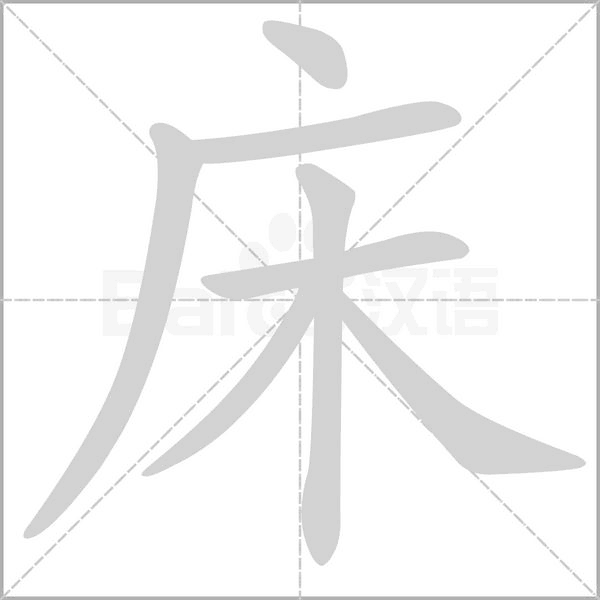
chuáng: bed
radical: 广 (guǎng, shelter)
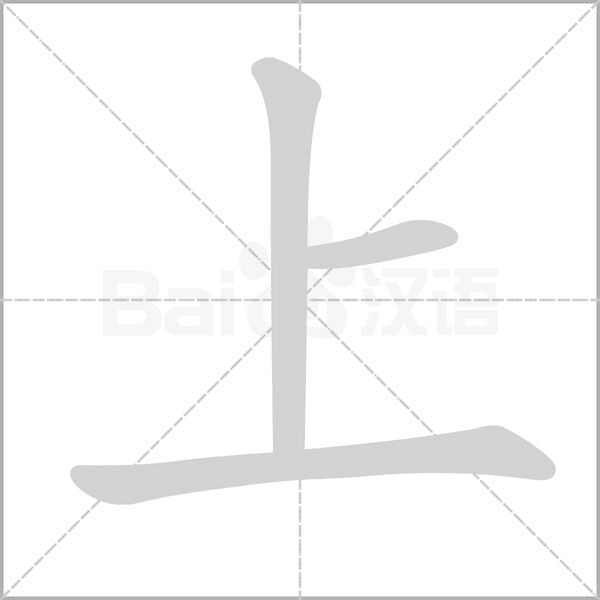
shàng: up
radical: 一
Both traditional and simplified characters are written as:
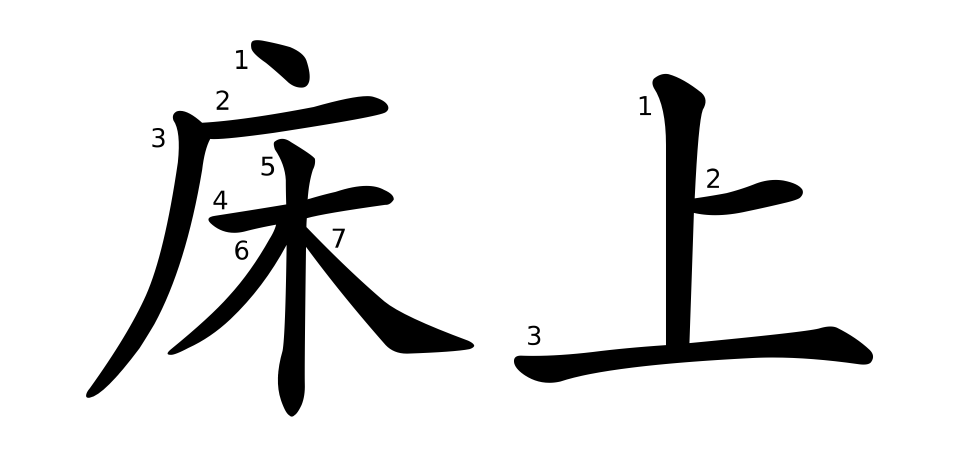
發生/发生 [fāshēng] V. to happen. 最近發生了很多事情/最近发生了很多事情。A lot of things have happened recently.
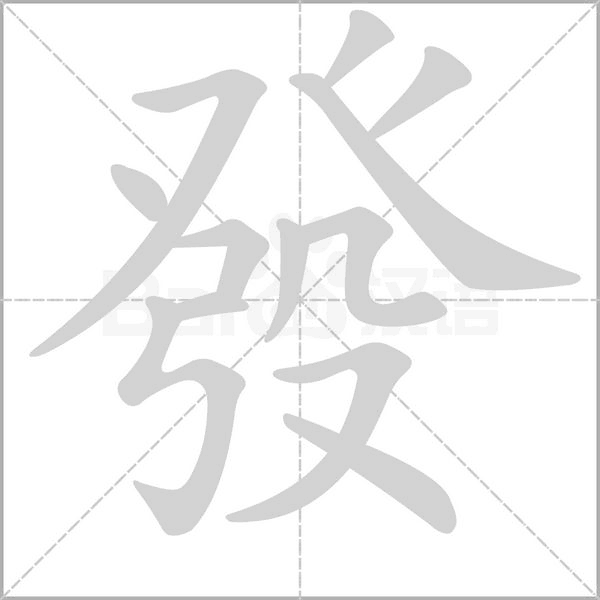
fā: produce; generate; come [bring] into existence
radical: 癶
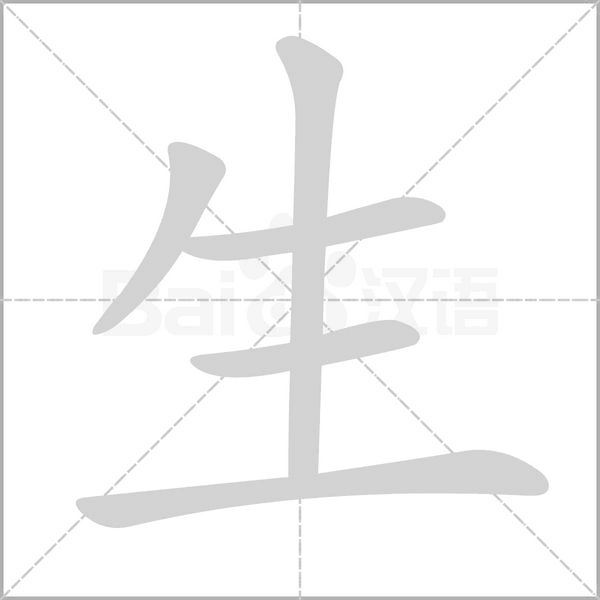
shēng: be born; grow; exist
radical: 生
Simplified character:
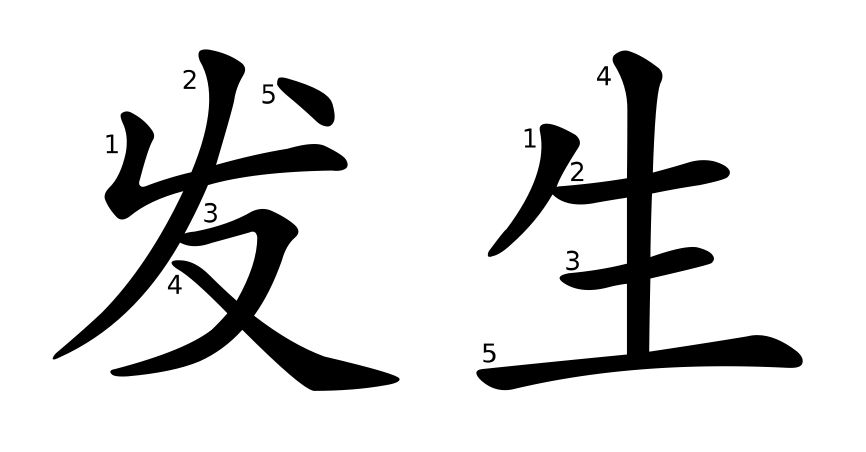
世界 [shìjiè] N. world. 你是世界上最好的人。You are the best person in the world.
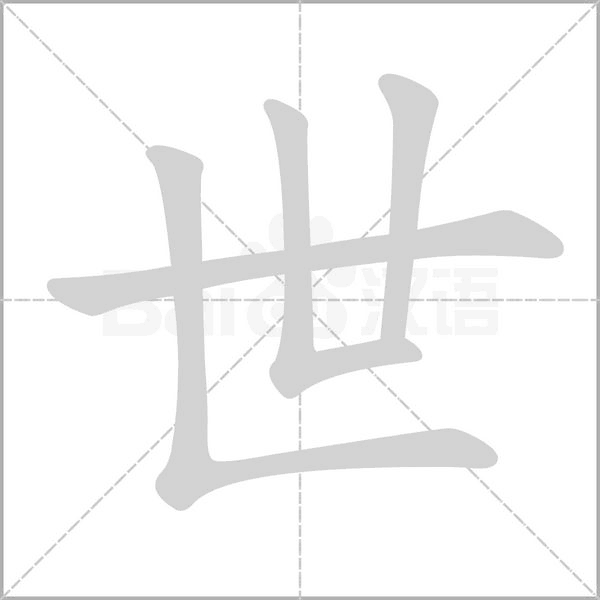
shì: lifetime; world
radical: 一
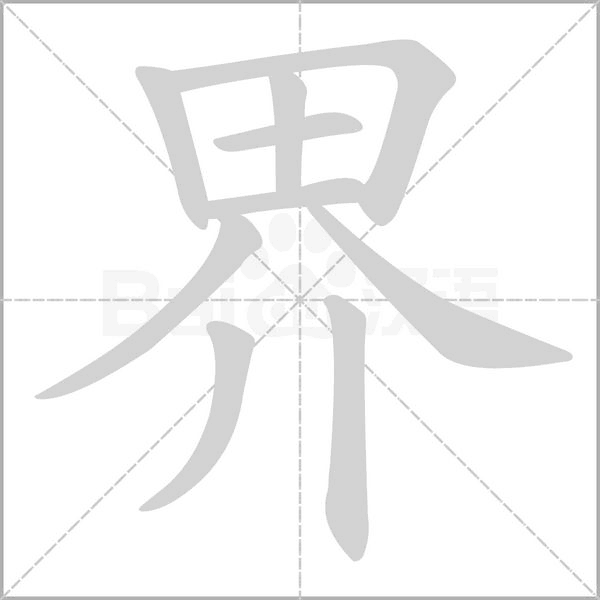
jiè: boundary; scope; extent
radical: 田 (tián; field; farmland)
Both traditional and simplified characters are written as:
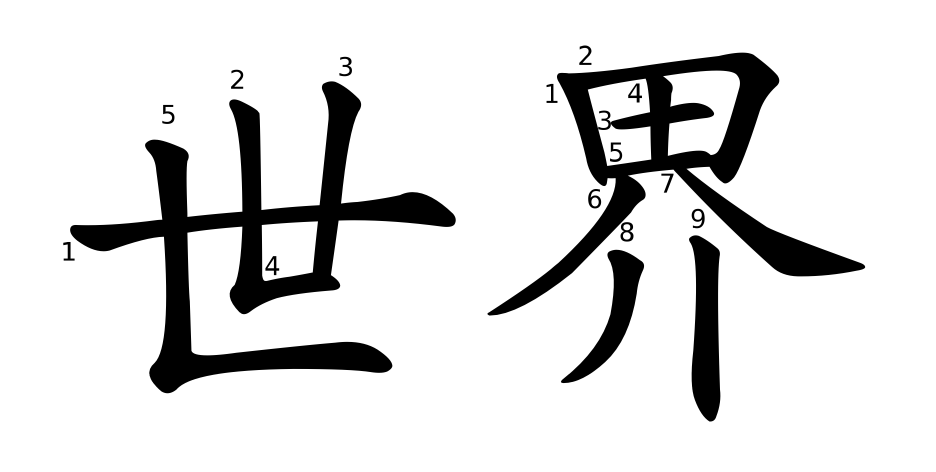
假期 [jiàqī] N. vacation. 我想假期去北京。I want to go to Beijing during the holiday.
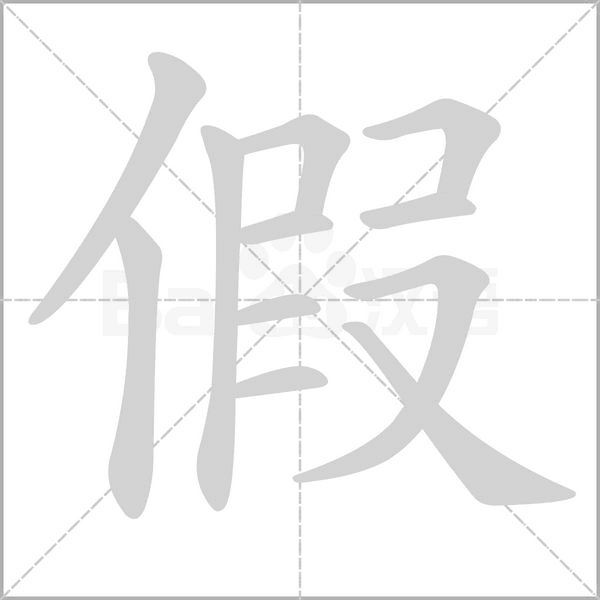
jià: holiday; vacation; leave of absence
radical: 亻(rén; person)
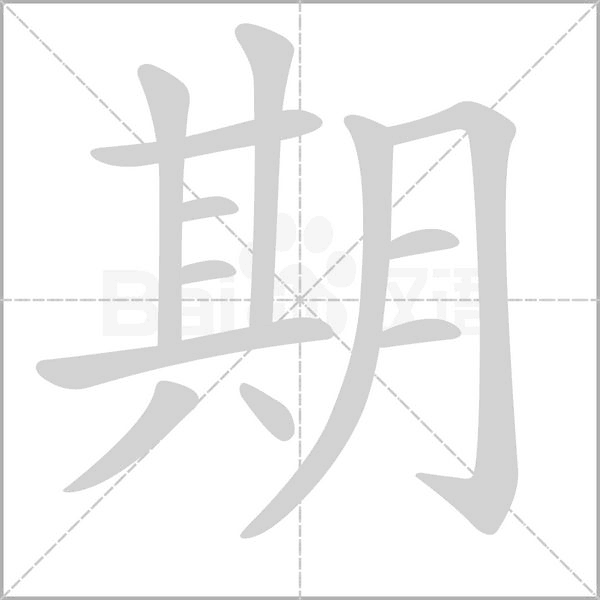
qī: a period of time
radical: 月 (yuè; moon)
Both traditional and simplified characters are written as:
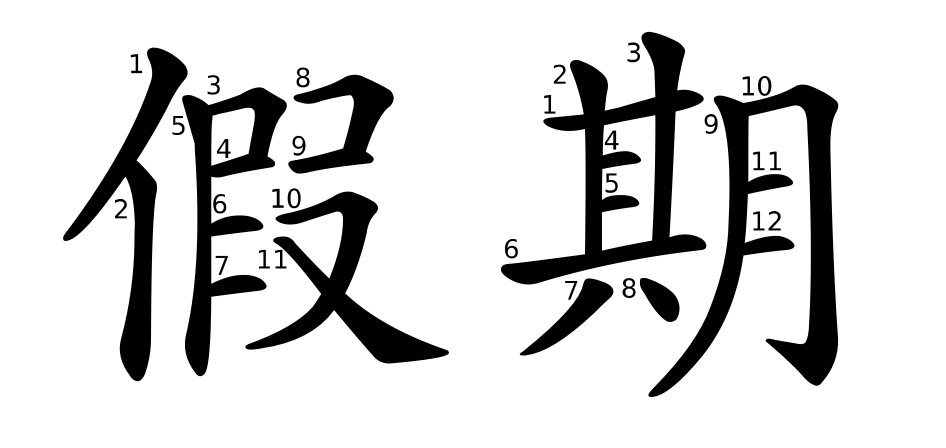
收養/收养 [shōuyǎng] V. to adopt (a pet). 我收養了一隻貓/我收养了一只猫。I adopted a cat.
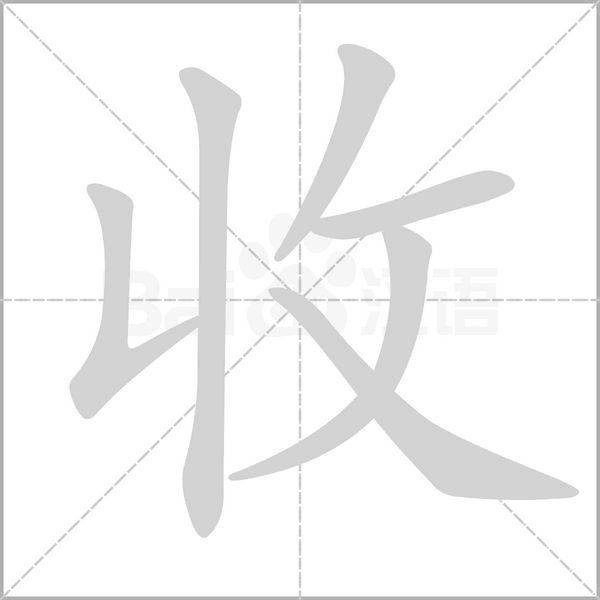
shōu: collect; receive; accept
radical: 攵(pū: Action related to hitting)
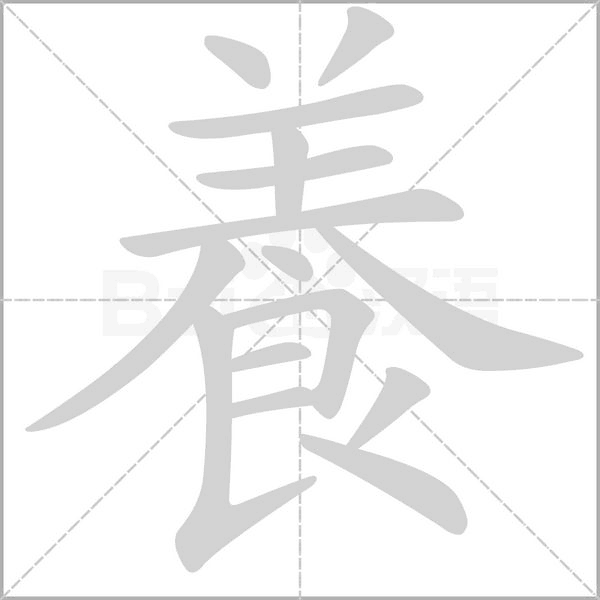
yǎng: support; provide for; raise
radical: 食 (shí: food)
Simplified character:
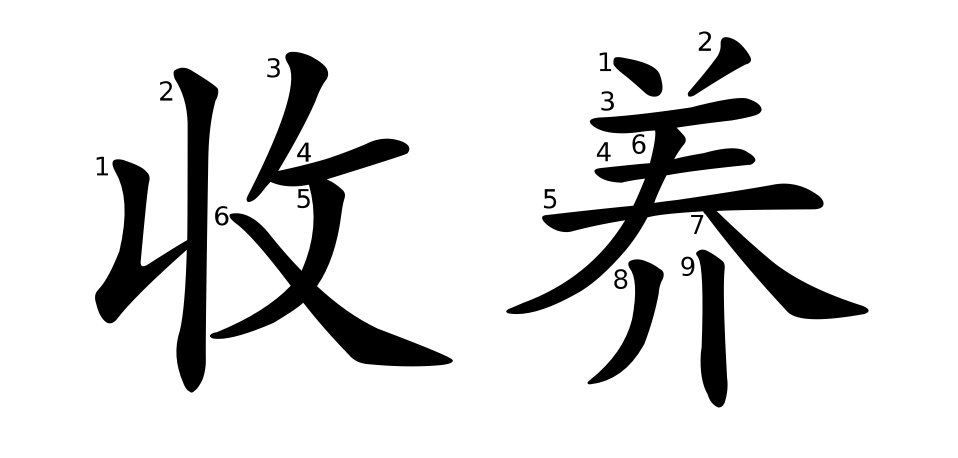
一隻貓/一只猫 [yìzhī māo] NP. a cat. 我家有一隻貓/我家有一只猫。My family has a cat.

yī: one
radical: 一
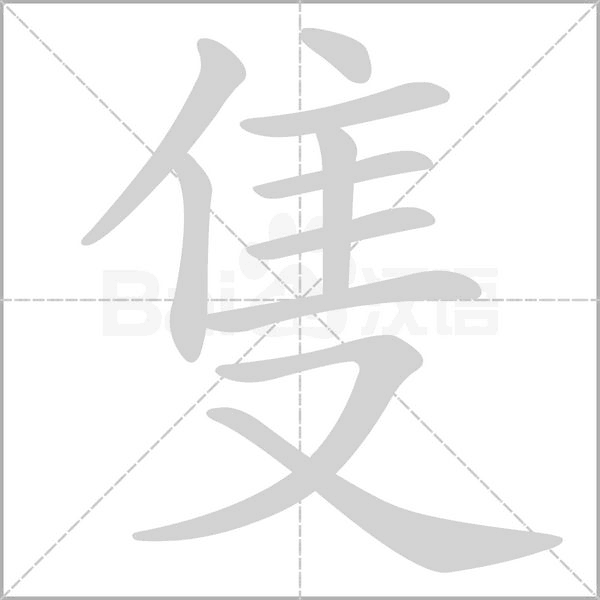
zhī: (Quantifiers used for certain animals)
radical: 隹 (zhuī: A general term for birds)
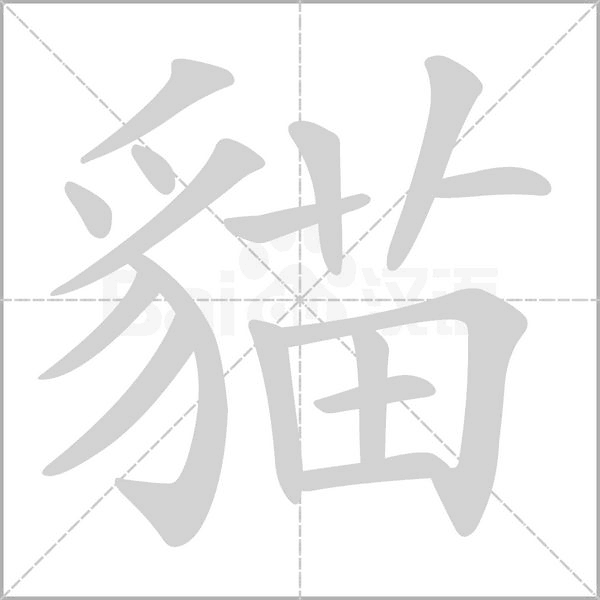
māo: cat
radical: 豸 (zhì: Refers to animals in a general sense)
Simplified character:
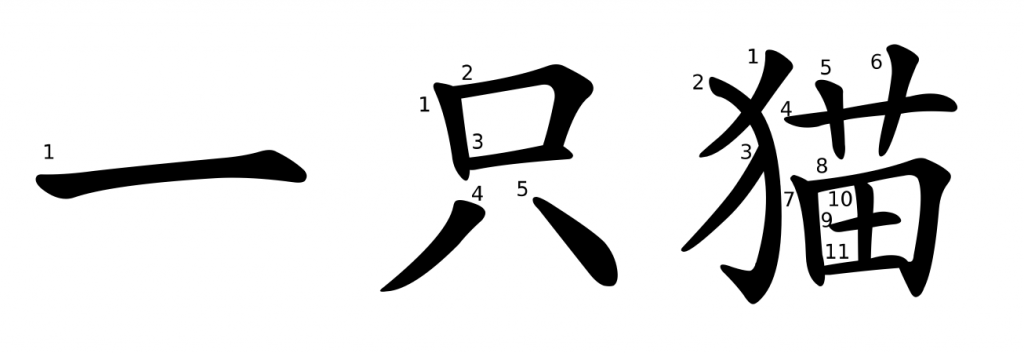
白色的毛 [báisède máo] N. white fur. 毛是白色的。The fur is white.

bái: white
radical: 白
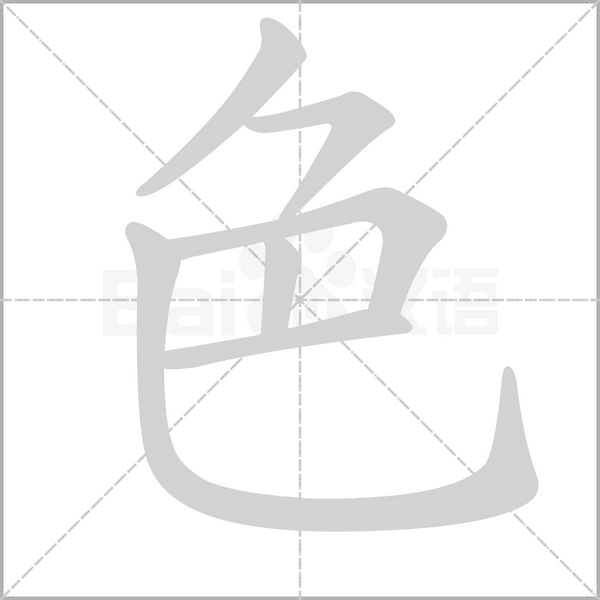
sè: color
radical: 色 / 丿 / ⺈
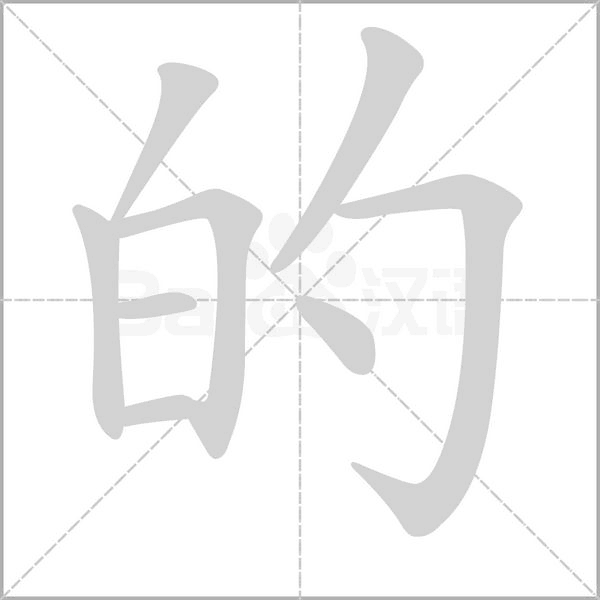
de: of
radical: 白
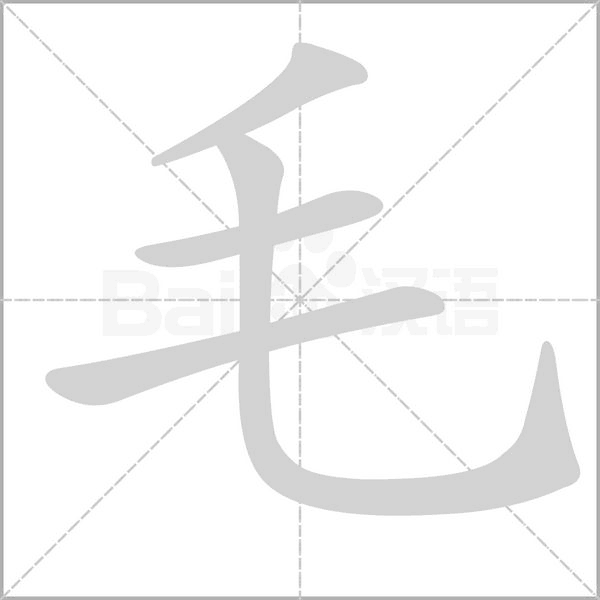
máo: fur; hair
radical: 毛
Both traditional and simplified characters are written as:

綠色/绿色 [lǜ sè] N. green color. 眼睛是綠色的。The eyes are green.
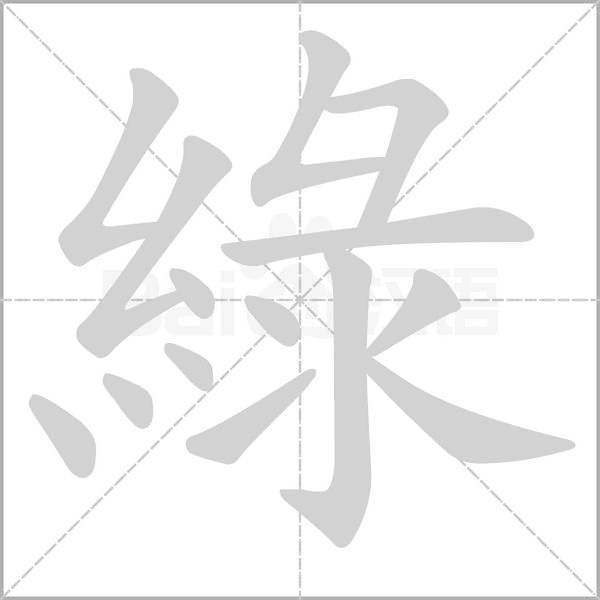
lǜ: green
radical: 糸 (sī: A bunch of silk)
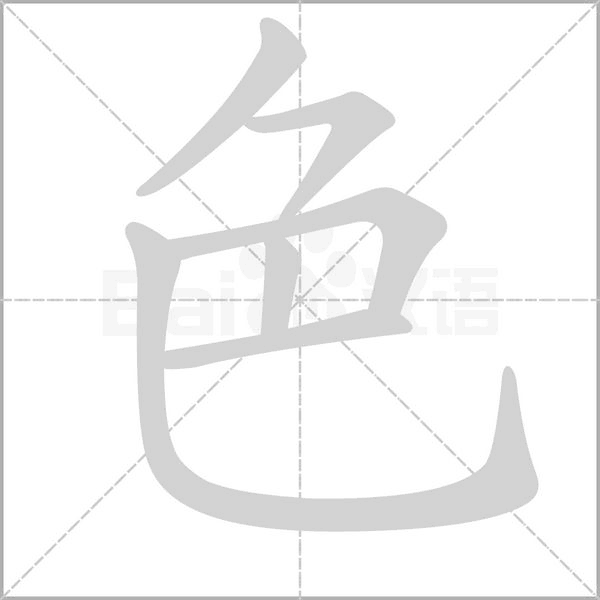
sè: color
radical: 色 / 丿 / ⺈
Simplified character:
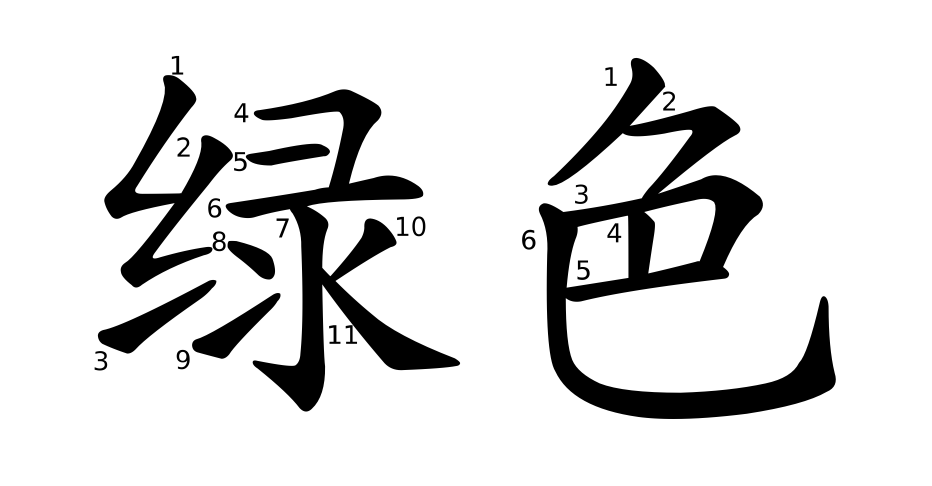
眼睛 [yǎnjīng.] N. eyes. 我的眼睛不太好。My eyesight is not very good.

yǎn: eye
radical: 目 (mù: eye)
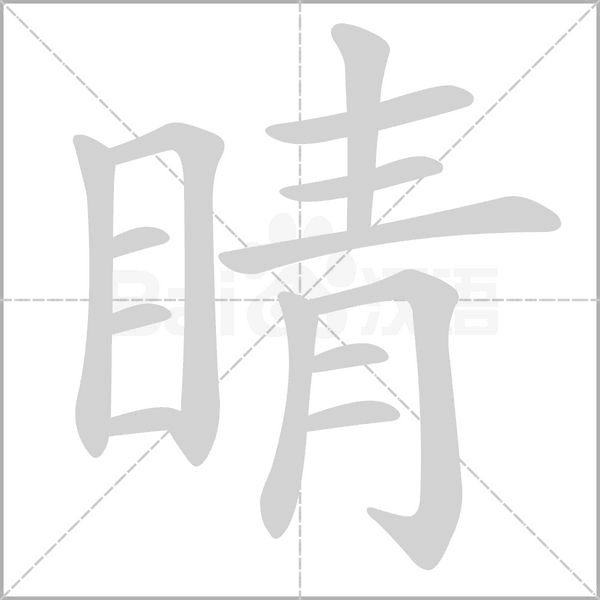
jīng: eyeball
radical: 目 (mù: eye)
Both traditional and simplified characters are written as:
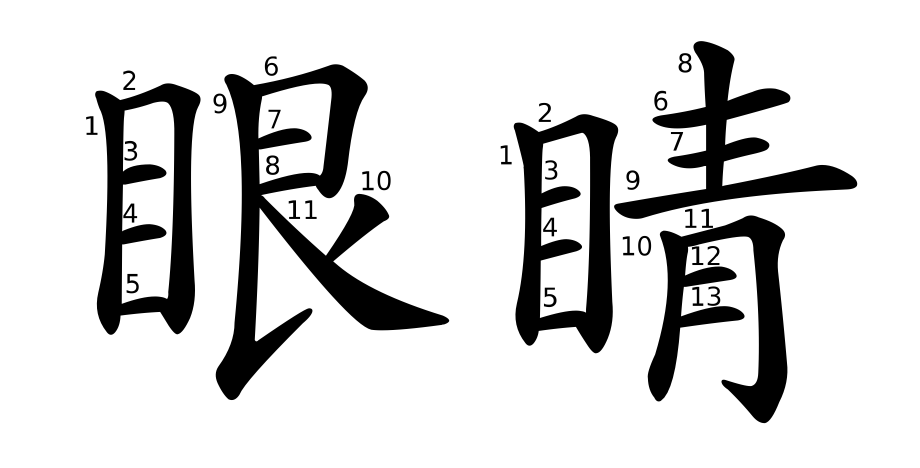
注意 [zhùyì] V. to notice. 大家注意,明天有考試。/大家注意,明天有考試。Attention everyone, there is an exam tomorrow.
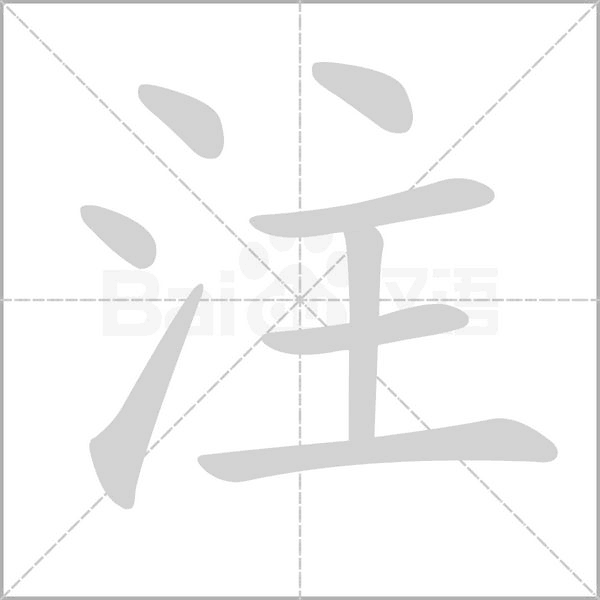
zhù: pour; concentrate on; annotate
radical: 氵(shuǐ; water)
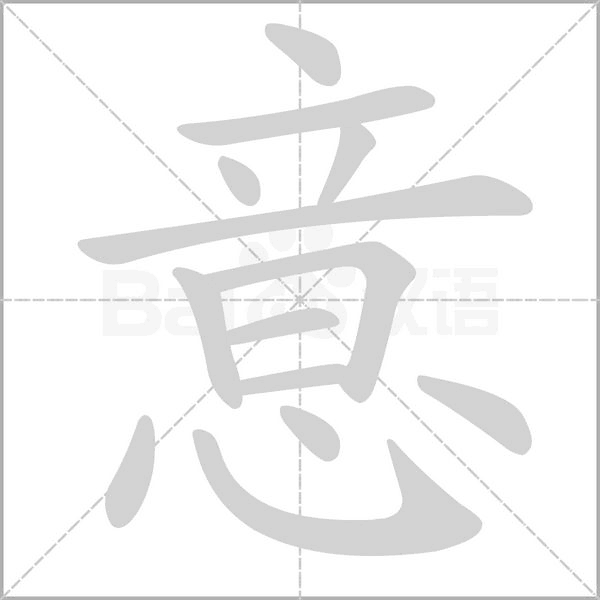
yì: intention; desire; meaning
radical: 心 (xīn; heart)
Both traditional and simplified characters are written as:
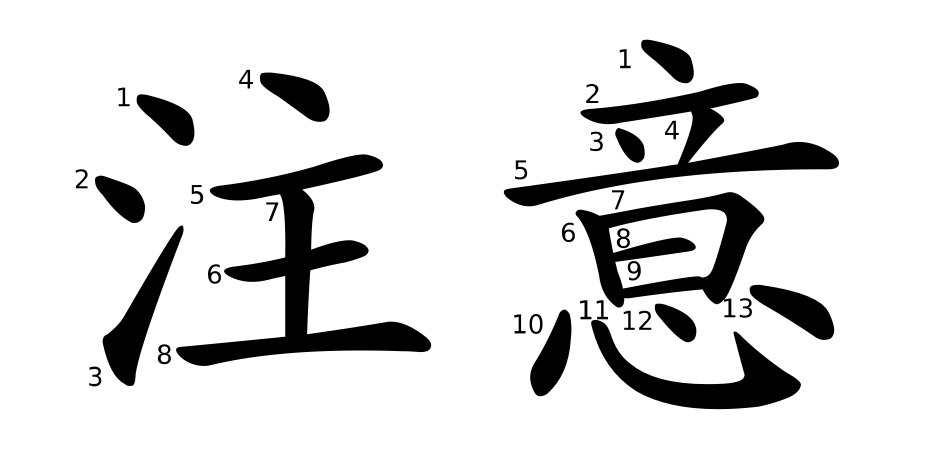
希望 [xīwàng] V./N. to hope. 我希望中文課沒有考試/我希望中文课没有考试。I hope there is no exam in Chinese class.
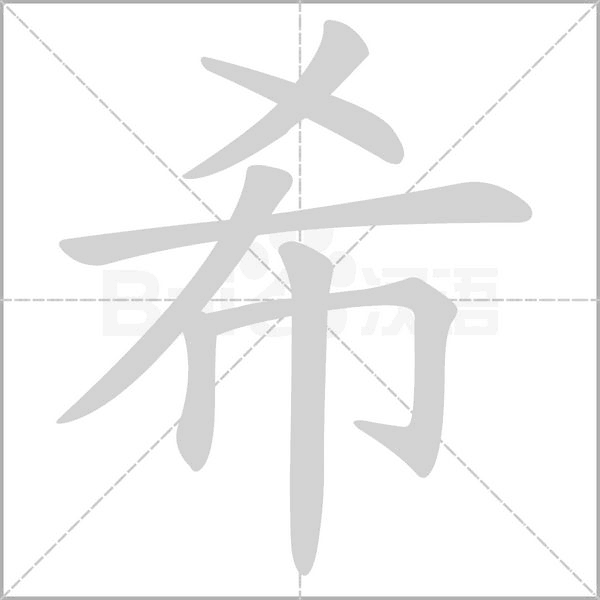
xī: hope
radical: 巾
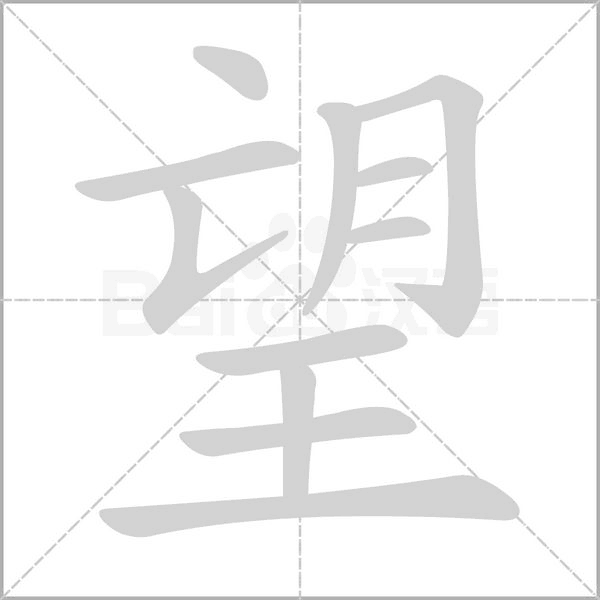
wàng: look over; expect
radical: 王 / 月
Both traditional and simplified characters are written as:
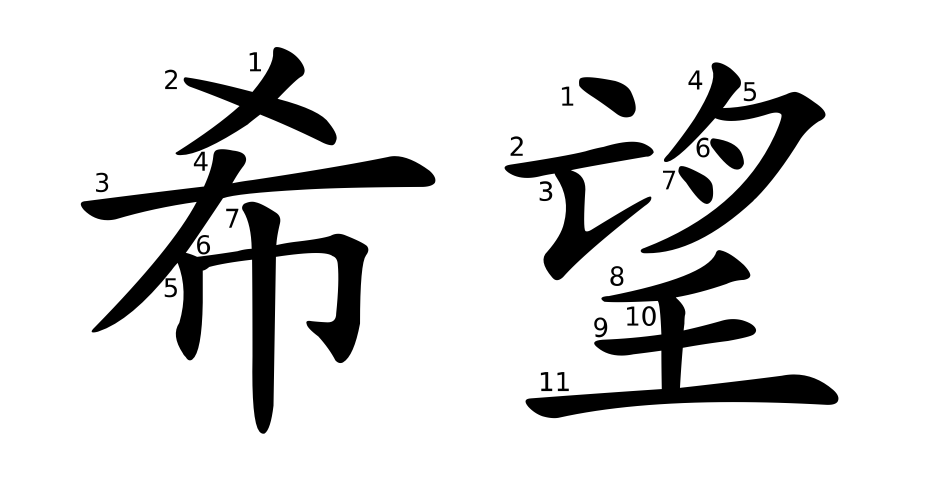
忘了 [wàng le] V. to forget. 我忘了。I forgot.
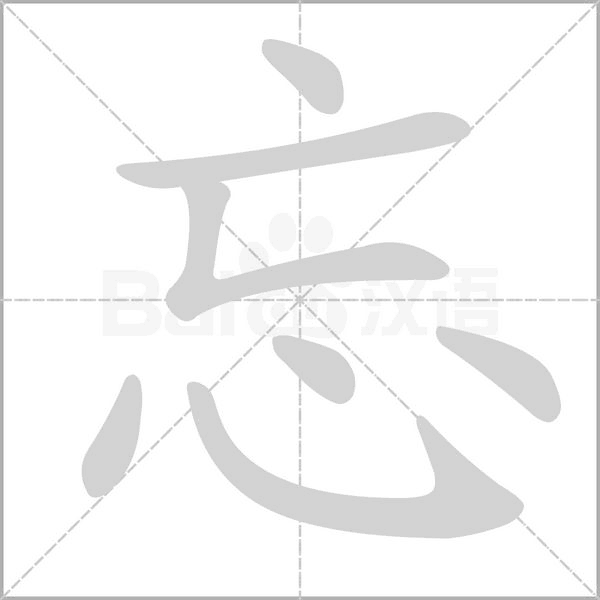
wàng: forget
radical: 心 (xīn; heart)

le: A Chinese particle
radical: 乛
Both traditional and simplified characters are written as:
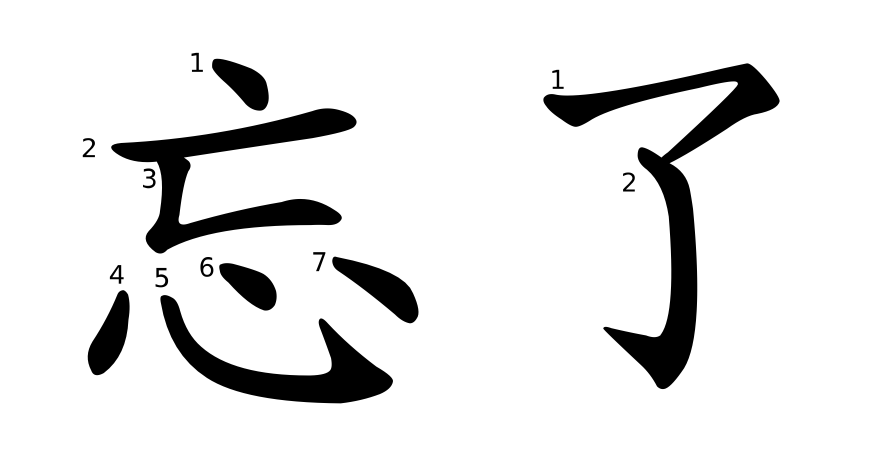
短 [duǎn] Adj. short. 考試的時間太短了/考试的时间太短了。The exam time is too short.
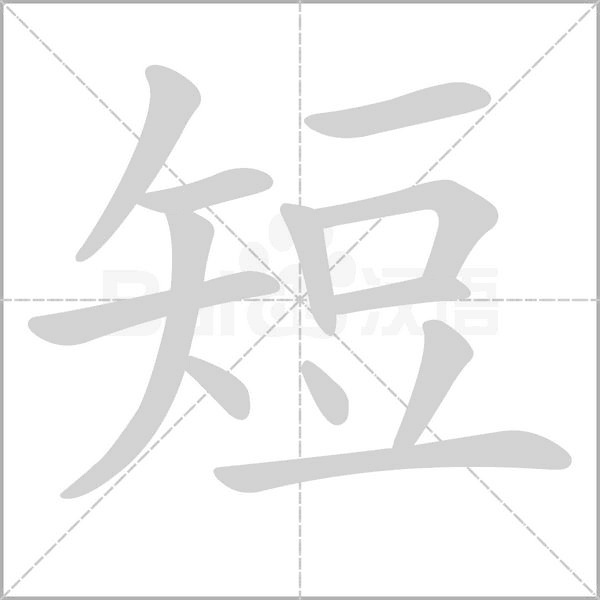
duǎn: short; brief
radical: 矢 (shǐ; arrow)
Both traditional and simplified characters are written as:
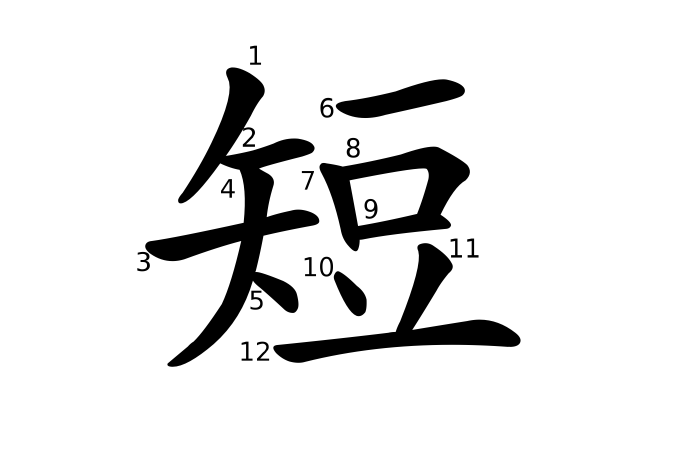
別急/别急 [bié jí] IE Don’t worry.

bié: don’t
radical: 刂
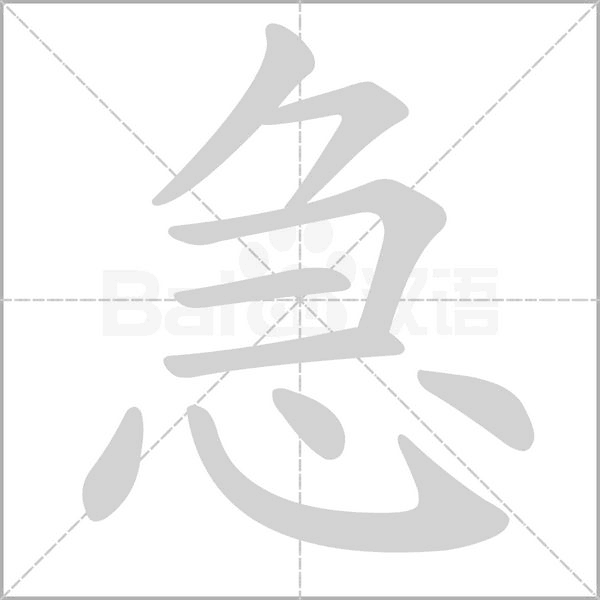
jí: impatient; anxious
radical: 心 (xīn; heart)
Simplified character:
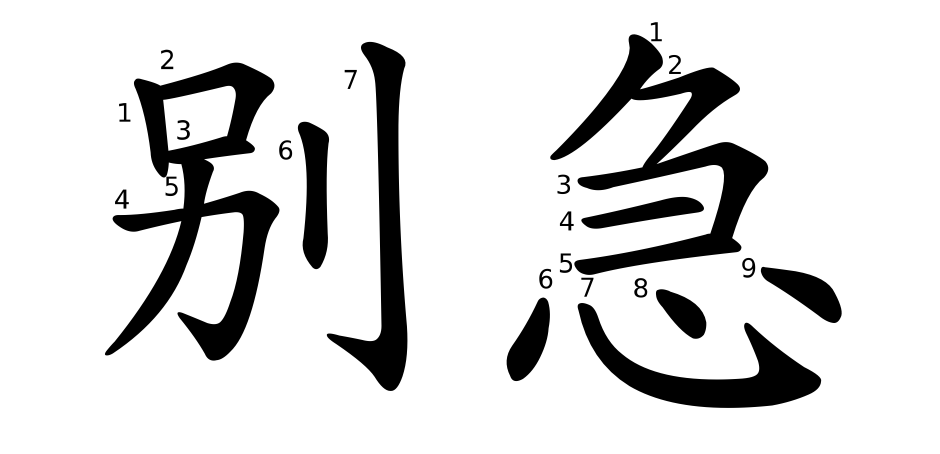
剛才/刚才 [gāngcái] TW just now. 你剛才去哪兒了?/你刚才去哪儿了?Where did you just go?
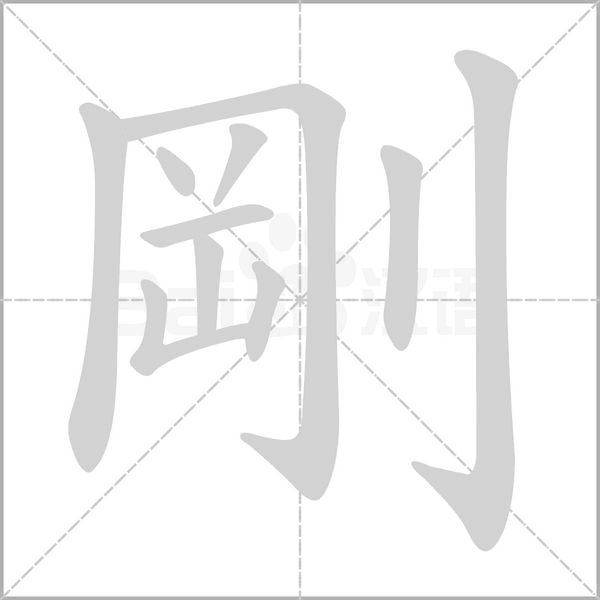
gāng: just; only a short while ago
radical: 刂

cái: (Indicates that the matter happened not long ago)
radical: 才
Simplified character:
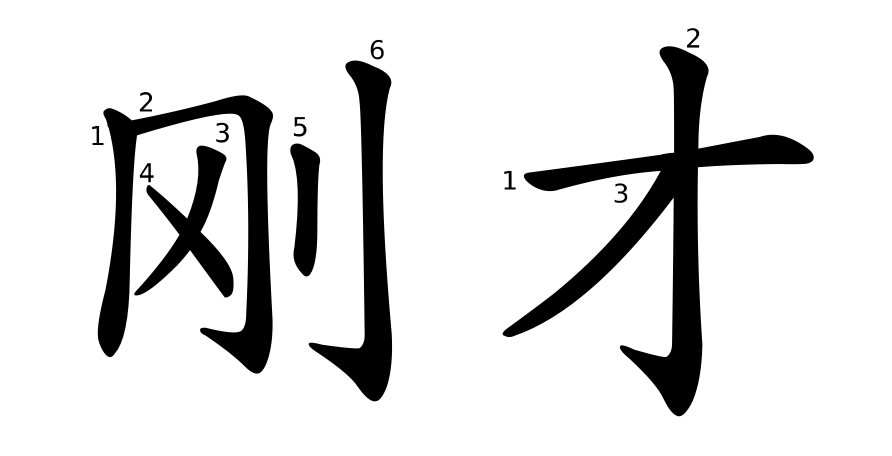
有意思 [yǒu yìsi] Adj. interesting. 中文課很有意思/中文课很有意思。Chinese class is very interesting.
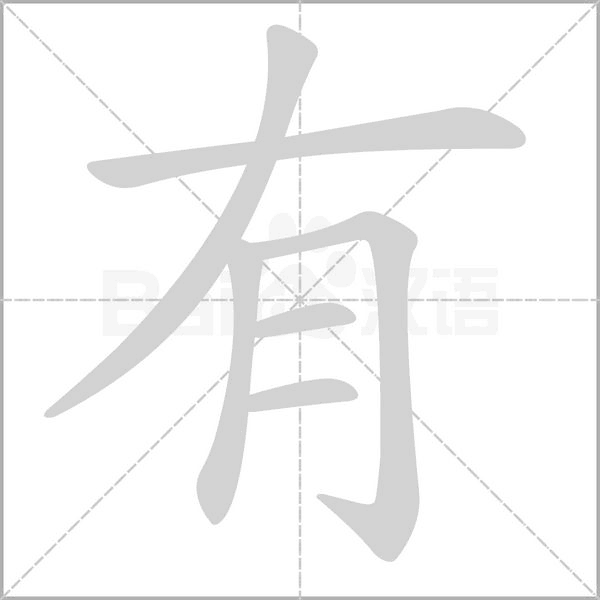
yǒu: have
radical: 月 (yuè: flesh; meat)
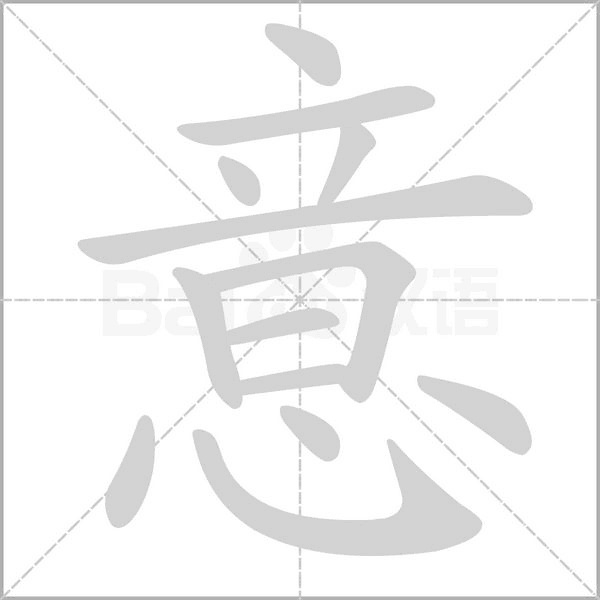
yì: mind; thought; meaning; feeling; interest
radical: 心 (xīn; heart)
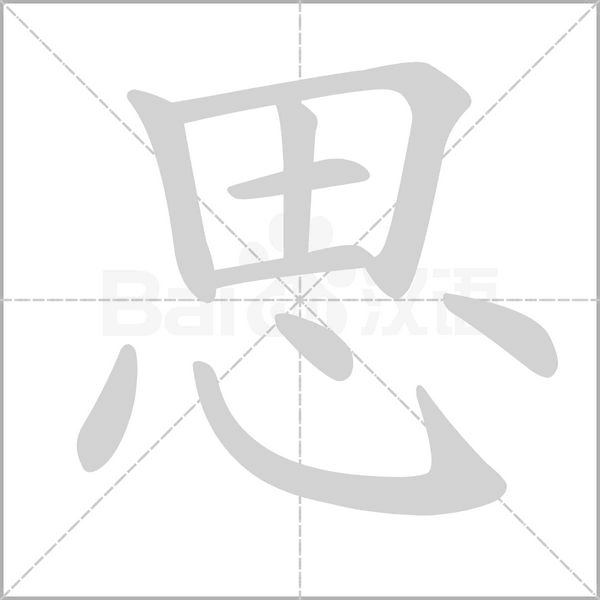
sī: thought; thinking
radical: 心 (xīn; heart)
Both traditional and simplified characters are written as:
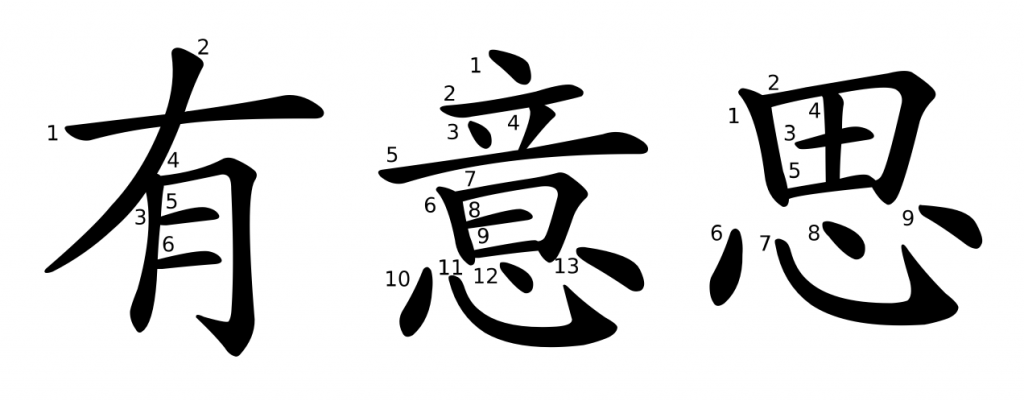
誤會/误会 [wùhuì] V. to misunderstand. 這是一個誤會/这是一个误会。This is a misunderstanding.
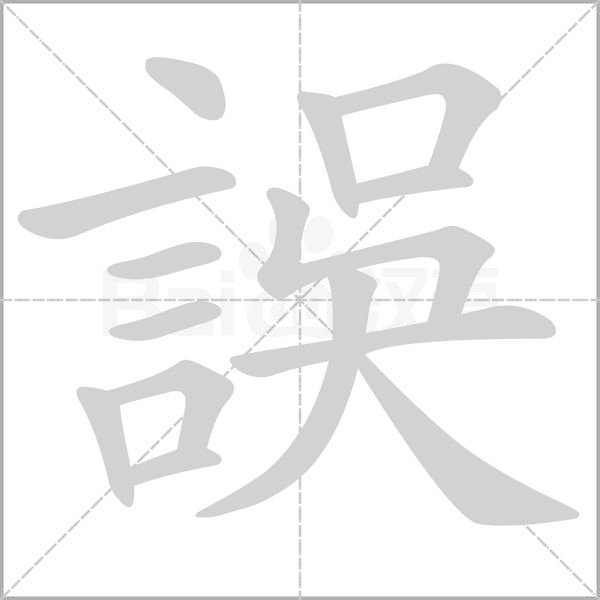
wù: mistake; error
radical: 言 (yán; language)
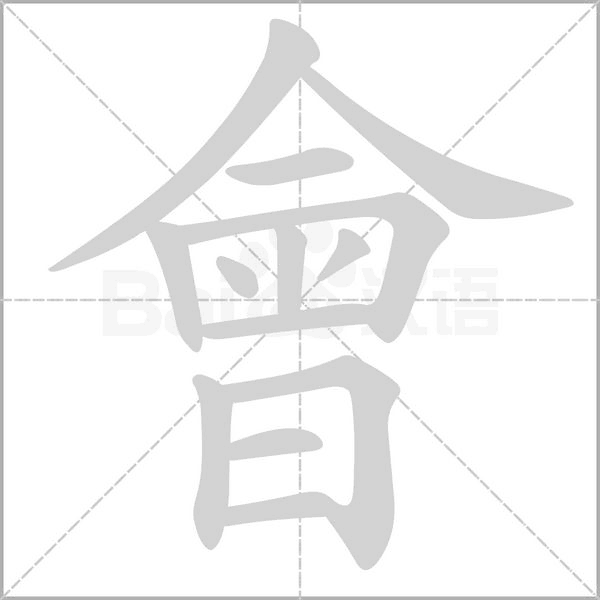
huì: to understand; to comprehend
radical: 人 (rén; person)
Simplified character:
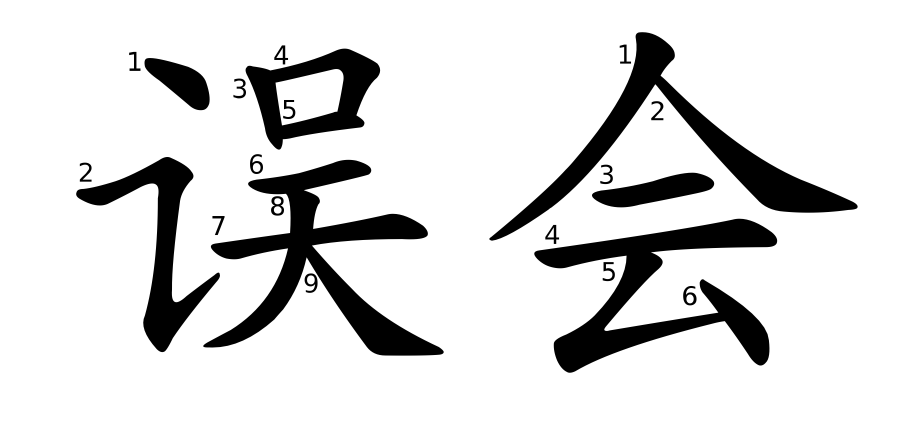
妙 [miào] Adj. Great!
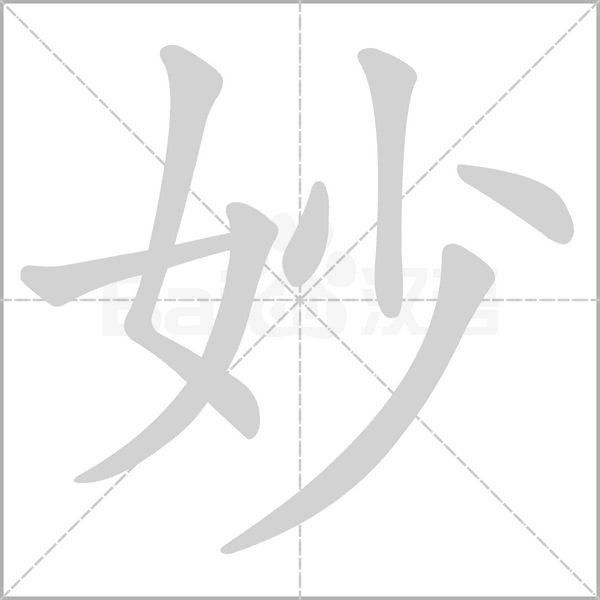
miào: wonderful; extraordinary; exquisite
radical: 女 (nǚ: female; girl; woman)
Both traditional and simplified characters are written as:
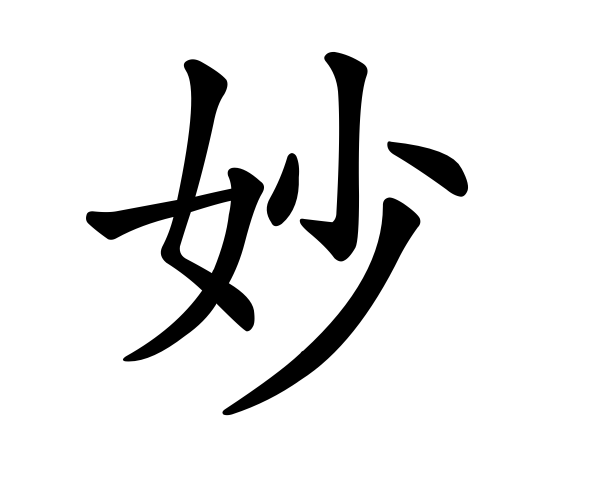
句子 [jùzi] N. sentence. 這個句子是什麼意思?/这个句子是什么意思?What does this sentence mean?

jù: sentence
radical: 勹
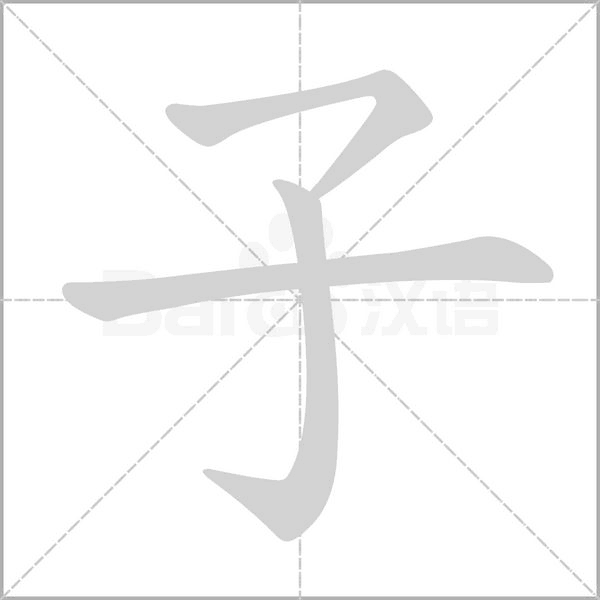
zǐ: A noun suffix with no independent meaning, used to form disyllabic words.
radical: 子
In Chinese, the character “子” (zi) often serves as a neutral-toned suffix to convert monosyllabic words into more rhythmically balanced disyllabic words (e.g., “句” → “句子” /jùzi/, “sentence”).
Similar to how English uses suffixes like “-tion” (e.g., “act” → “action”) but without carrying inherent meaning.
Both traditional and simplified characters are written as:
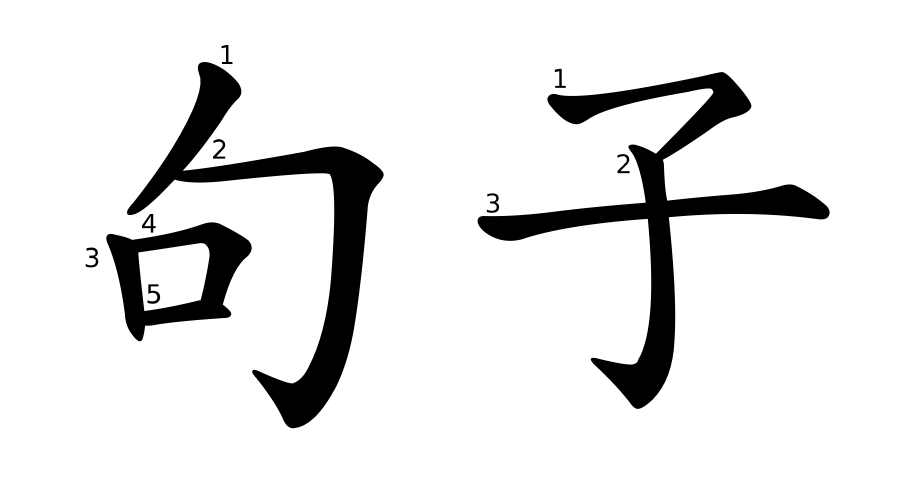
廢話/废话 [fèihuà] IE nonsense.
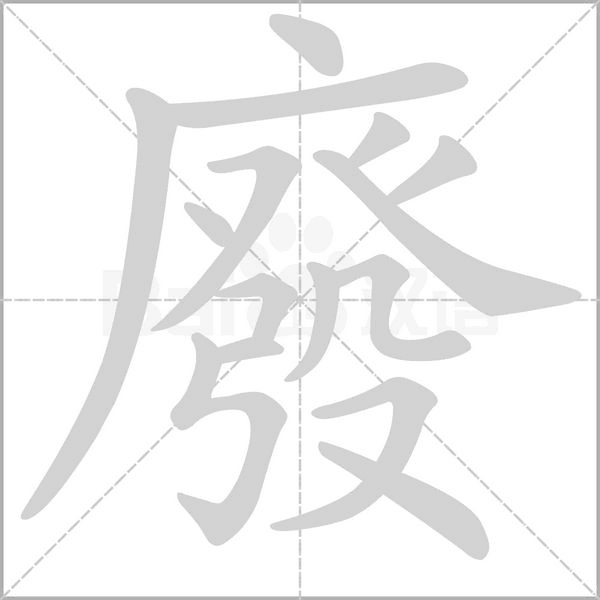
fèi: abolish; useless
radical: 广
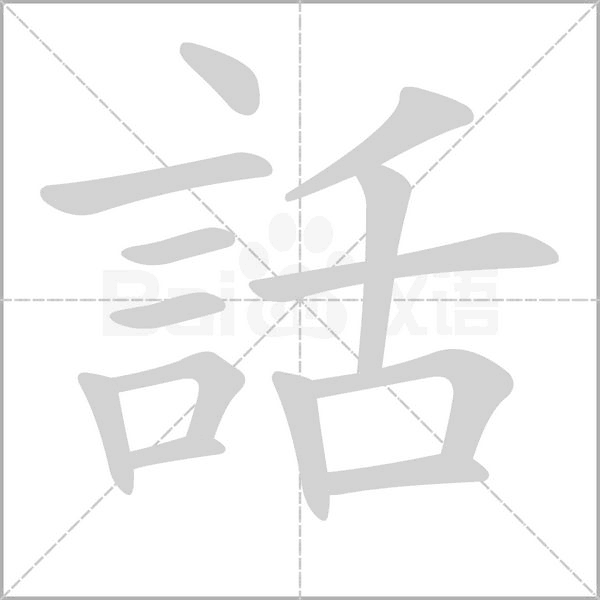
huà: word; talk
radical: 言 (yán; language)
Simplified character:
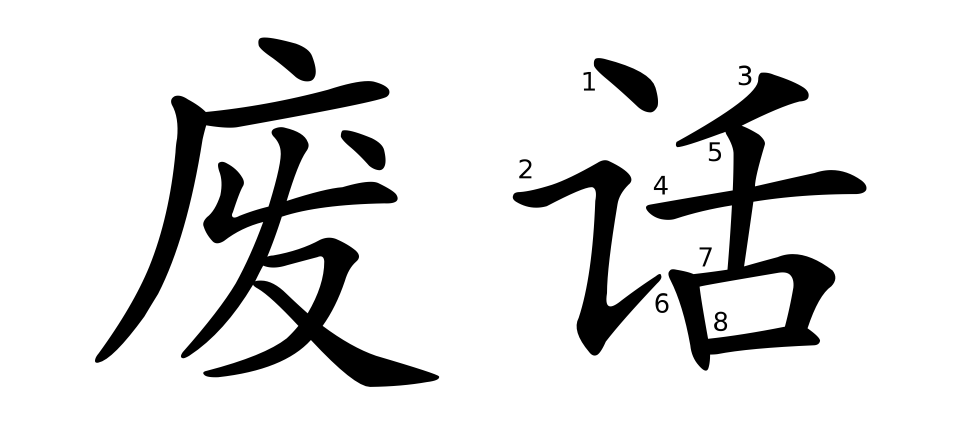
清楚 [qīng.chǔ] Adj. clear. 我聽不清楚/我听不清楚。I can’t hear clearly.
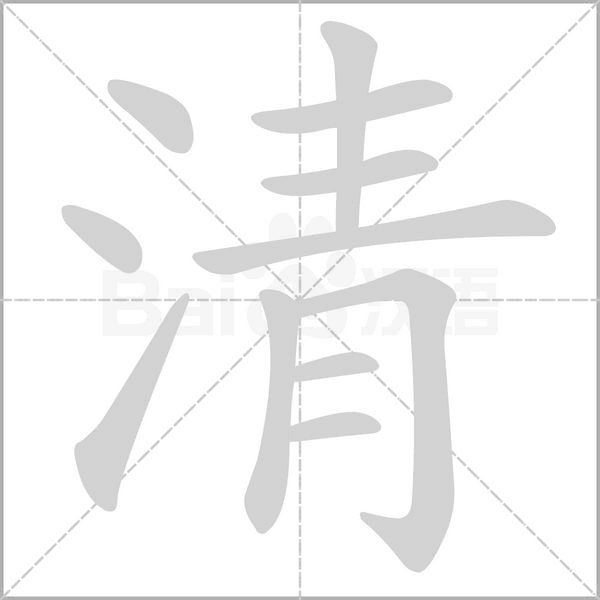
qīng: clear; quiet; distinct; with nothing left
radical: 氵(shuǐ; water)
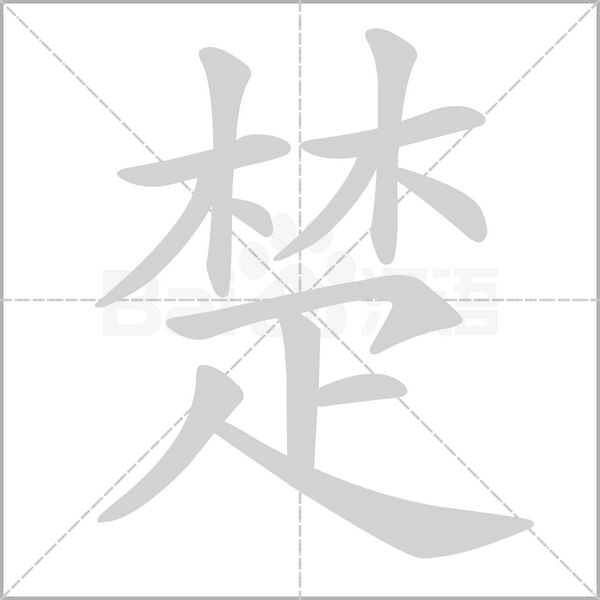
chǔ: clear; neat
radical: 木
Both traditional and simplified characters are written as:
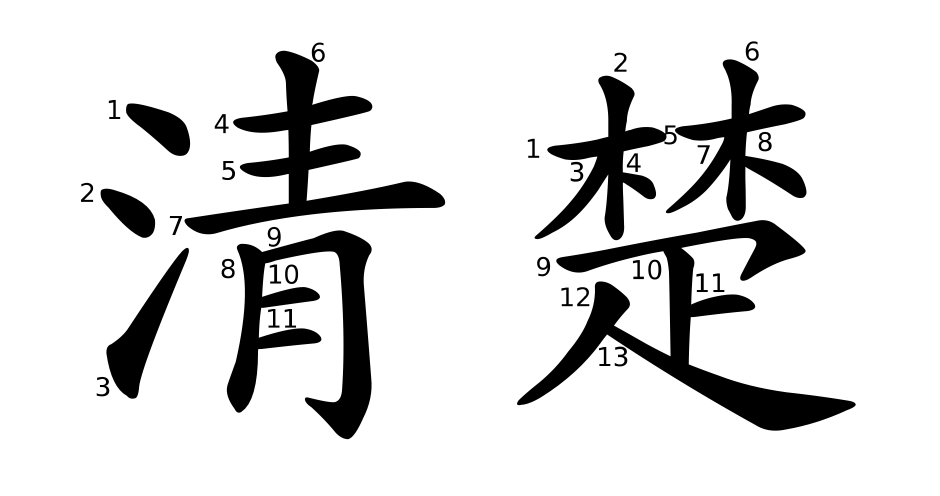
幹什麼/干什么 [gàn shén.mo] VP. What are you doing?
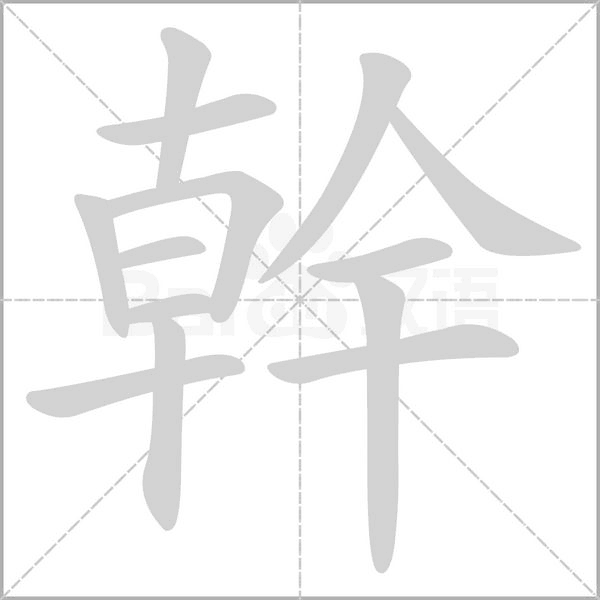
gàn: do
radical: 干

shén
radical: 亻(rén; person)
As part of the interrogative pronoun “什麼/什么” (shénme), it serves to form the question word, where “什” merely contributes phonetically and semantically without independent meaning.
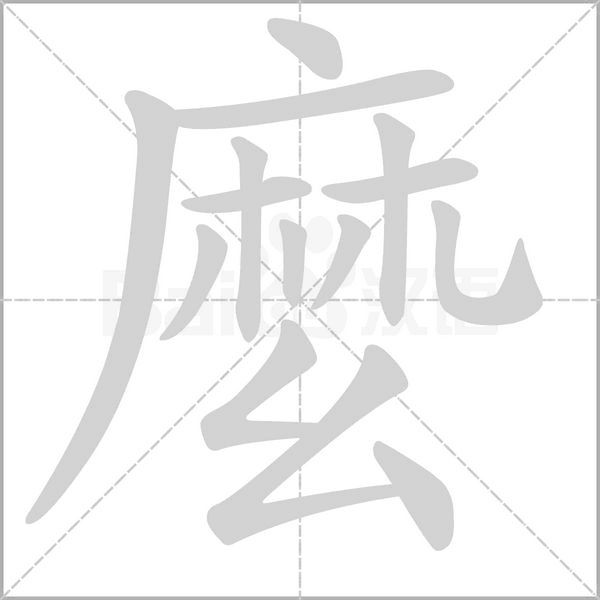
me
radical: 广
As part of the interrogative pronoun “什麼/什么” (shénme), it serves to form the question word, where “麽” merely contributes phonetically and semantically without independent meaning.
Simplified character:
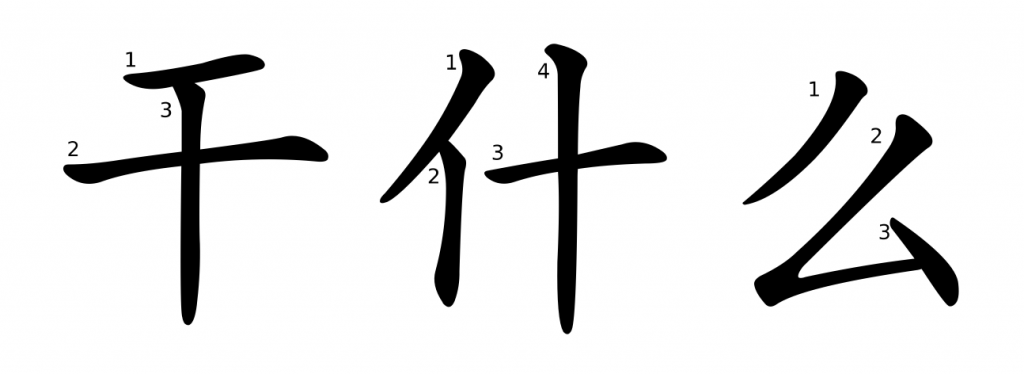
肯定 [kěndìng] Adv. definitely. 我很肯定。I am very sure.
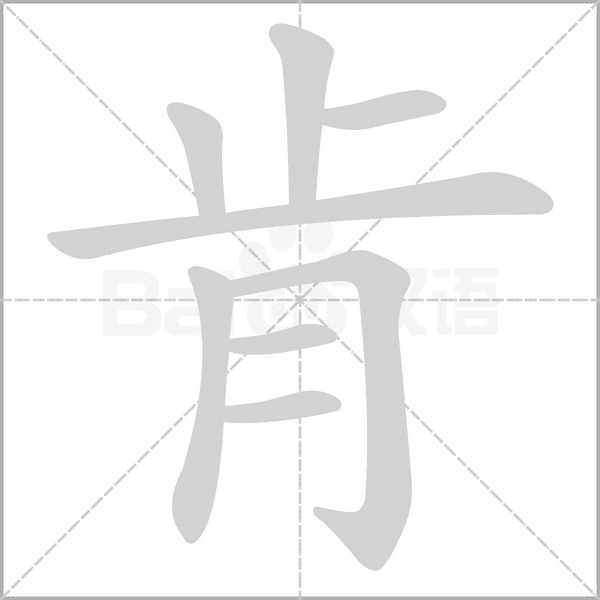
kěn: agree; be willing to
radical: 月
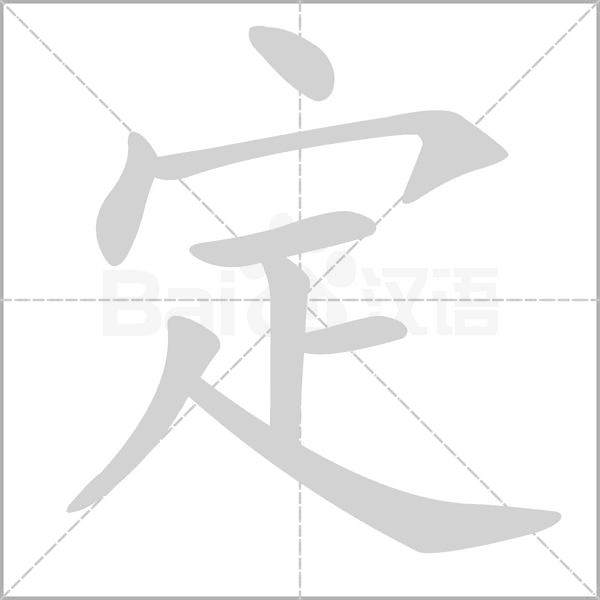
dìng: fixed; settled; established
radical: 宀 (mián; roof)
Both traditional and simplified characters are written as:
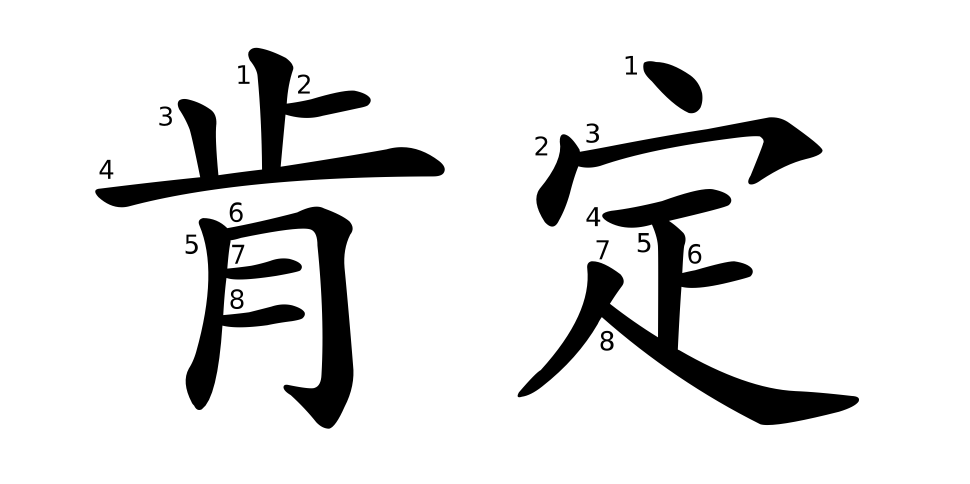
忠實/忠实 [zhōngshí] Adj. loyal. 他是我忠實的朋友/他是我忠实的朋友。He is my loyal friend.
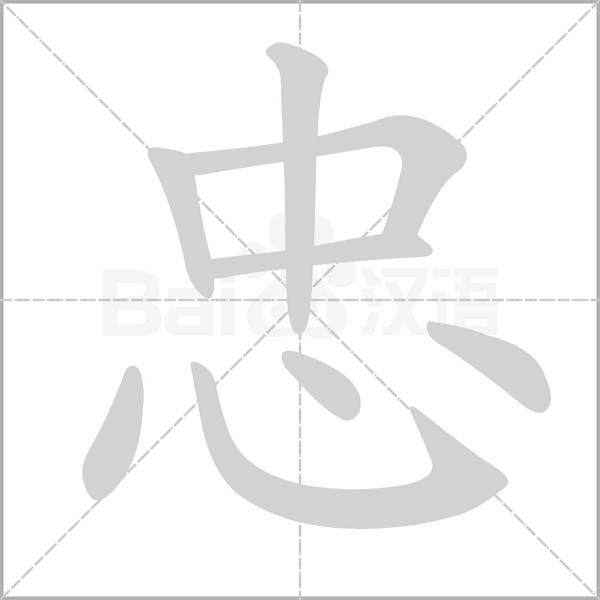
zhōng: loyal; devoted; faithful; honest
radical: 心 (xīn; heart)
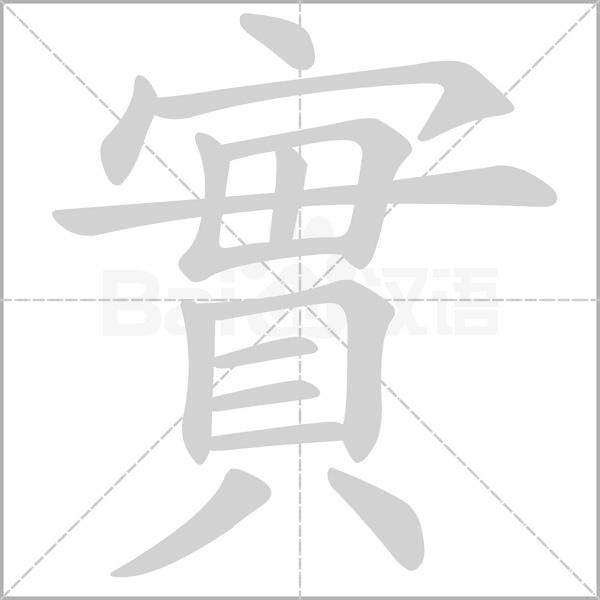
shí: solid; true; real; honest
radical: 宀 (mián; roof)
Simplified character:
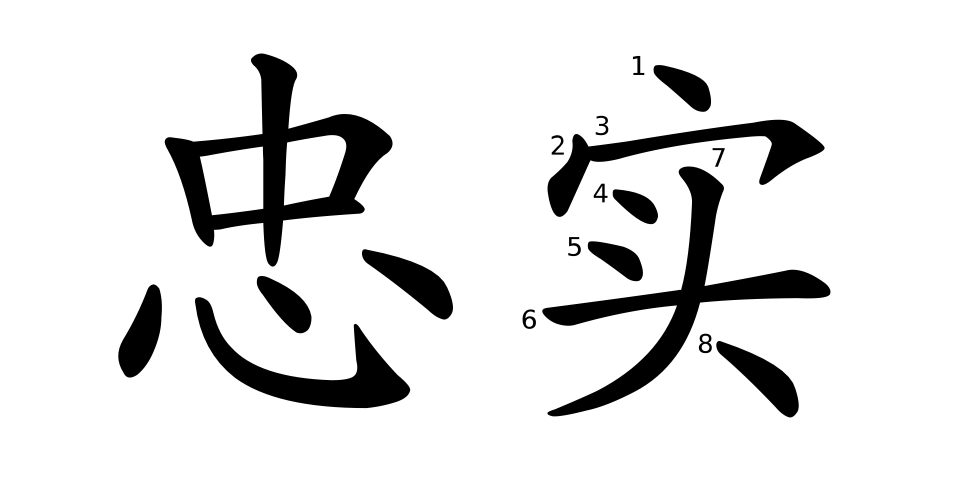
爬山 [páshān] VP. climb mountains. 我們明天去爬山吧?/我们明天去爬山吧?Shall we go hiking tomorrow?

pá: crawl; climb
radical: 爪 (zhuǎ; claw; talon; paw)

shān: mountain; hill
radical: 山
Both traditional and simplified characters are written as:
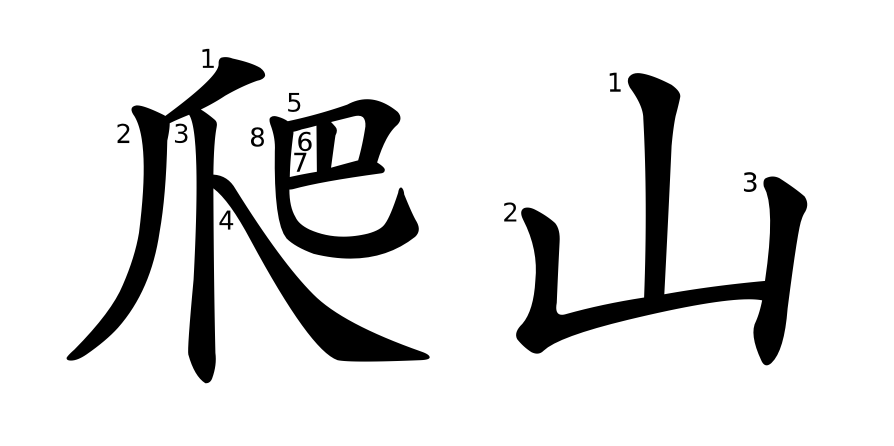
跳舞 [tiàowǔ] V-O. to dance. 我跳舞跳得不好。I am not good at dancing.
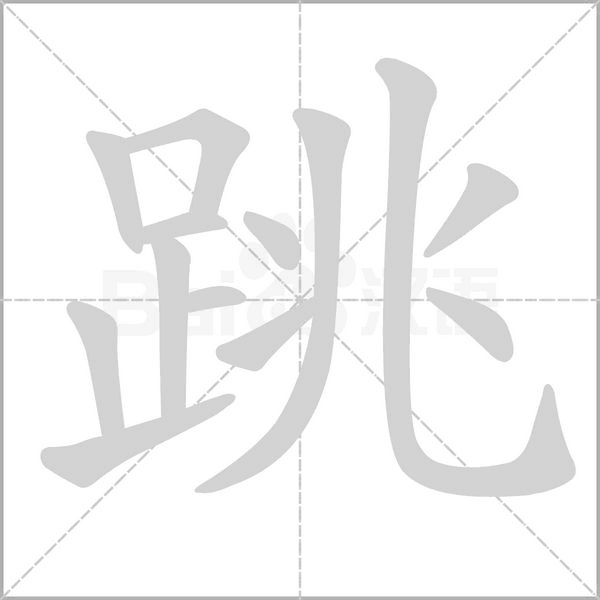
tiào: jump
radical: 足 (zú; foot)
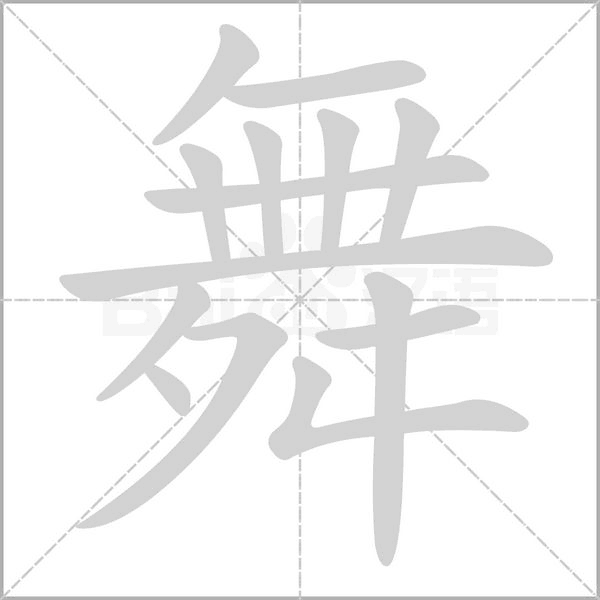
wǔ: dance; dancing
radical: 夕
Both traditional and simplified characters are written as:
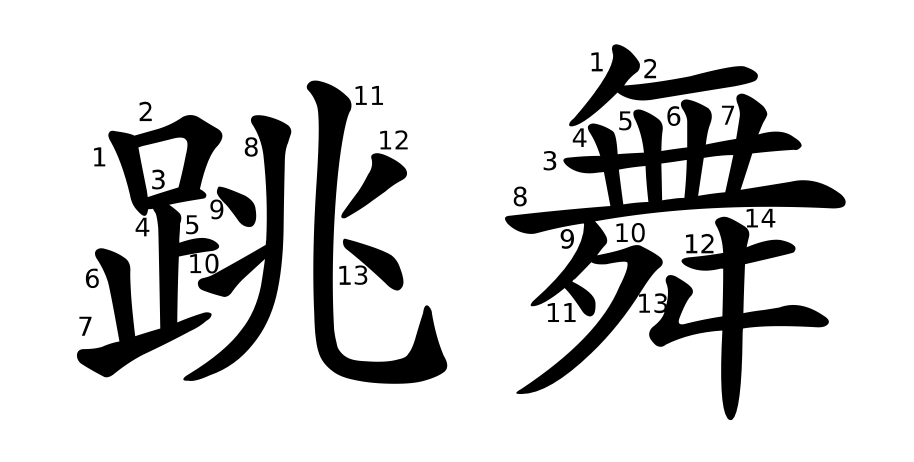
喝酒 [hējiǔ] V-O. drink alcohol. 你想不想喝酒?Do you want to drink alcohol?
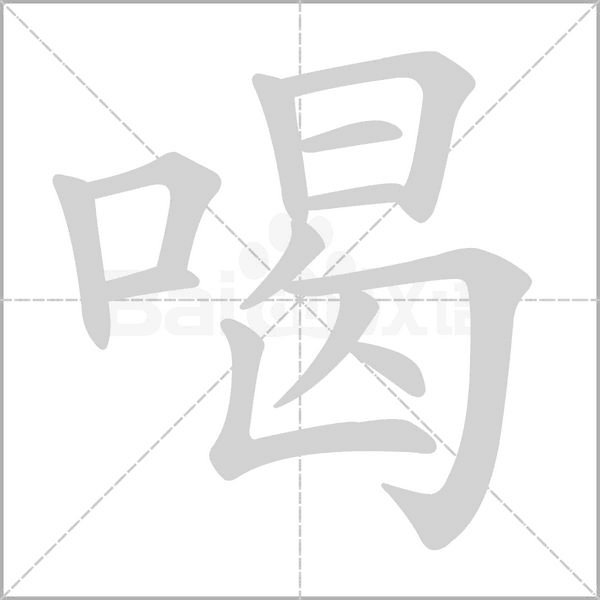
hē: drink
radical: 口 (kǒu: mouth)
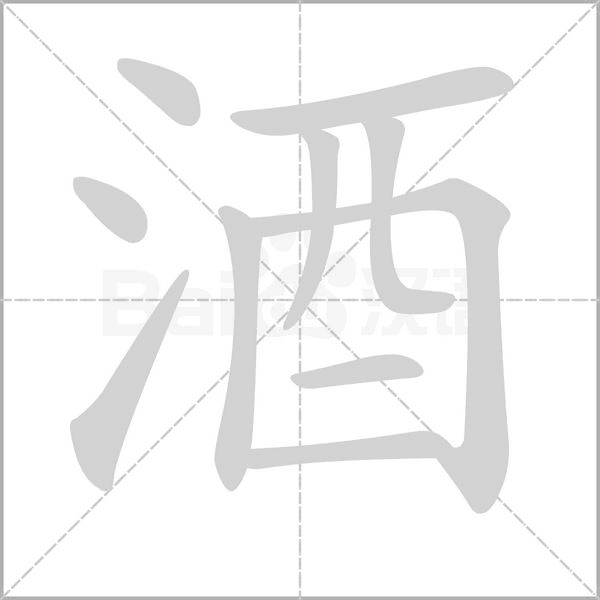
jiǔ: alcoholic drink; wine; liquor
radical: 氵(shuǐ; water)
Both traditional and simplified characters are written as:
